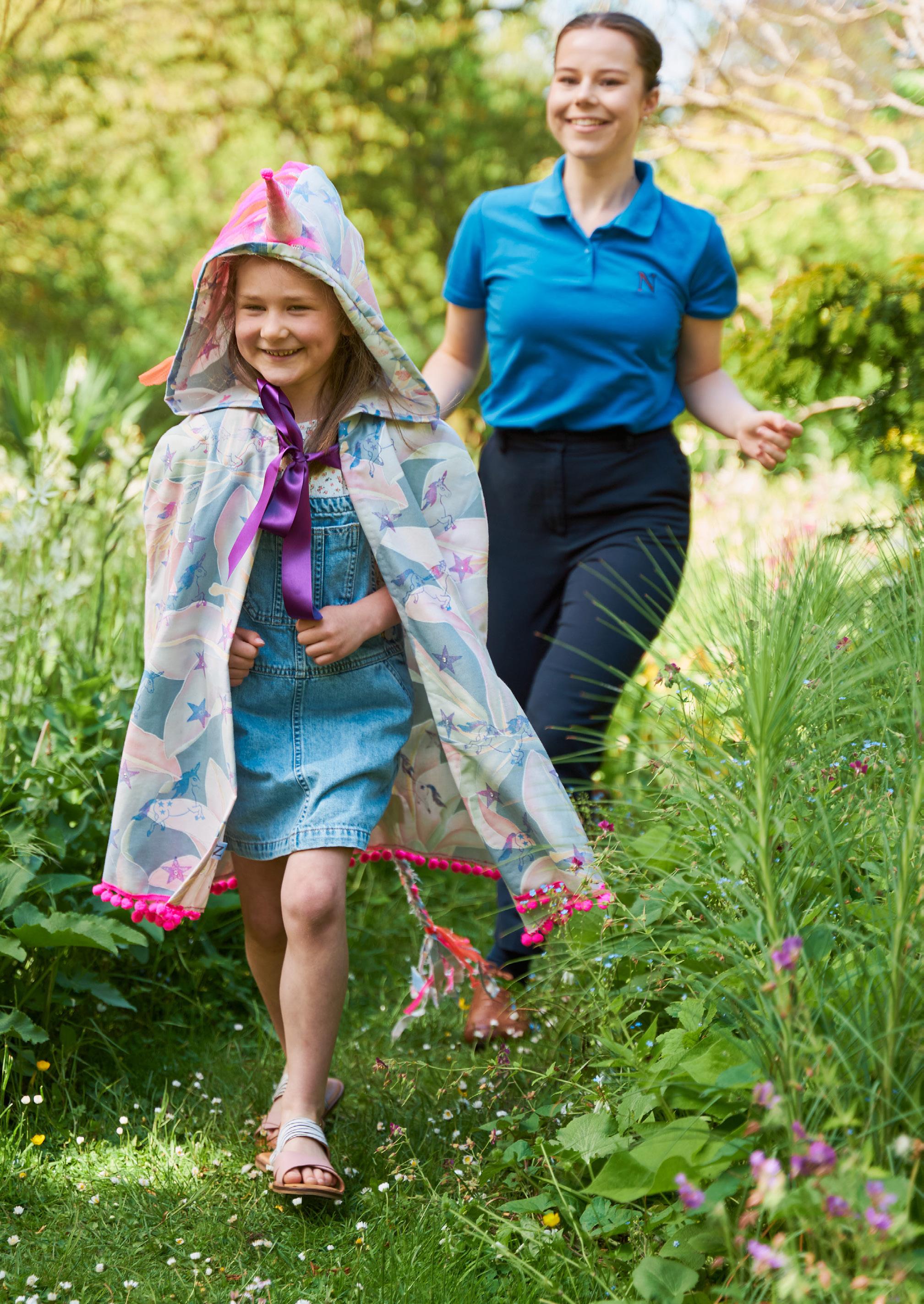UNDERGRADUATE PROSPECTUS

2023/24
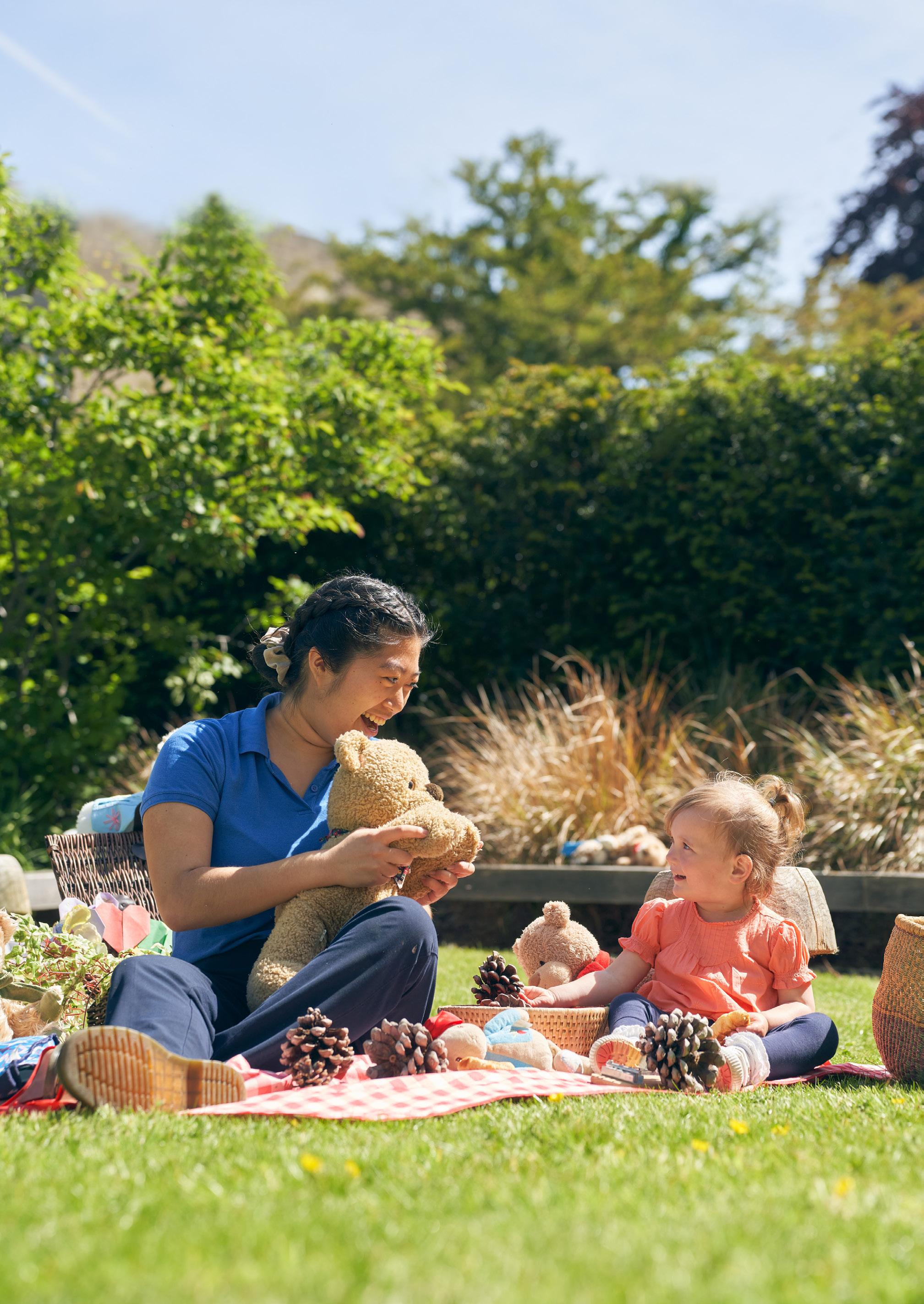



2023/24


We’ve come a long way in our 130 years. Our awardwinning higher education training uniquely integrates a BA (Hons) early childhood studies degree with the prestigious Norland diploma and an extensive valueadded curriculum to ensure our students receive the highest-quality teaching and learning in the early years sector. Our intensive programme is underpinned by cutting-edge research and backed up with initiatives such as security training by former military intelligence officers, self-defence training and talks by expert guest speakers.
In 2019, we were granted taught degree awarding powers by the Privy Council, a major step towards our ambition of becoming the first early years university in the world. This means you’ll be applying to study for
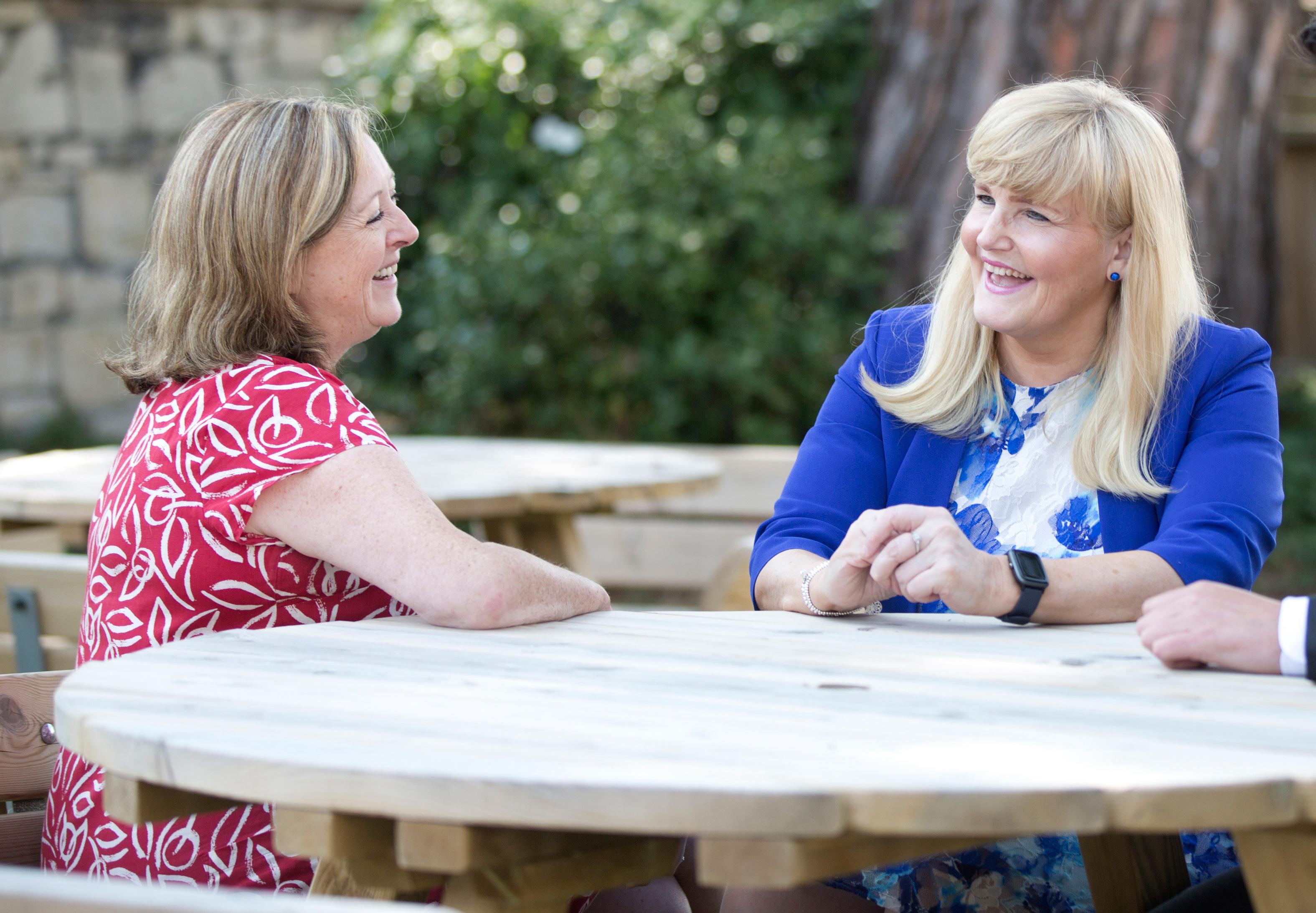
Norland’s own world-renowned degree and diploma qualifications.
We’re delighted to have been named the top university in the UK for graduate outcomes at the 2021 Whatuni Student Choice Awards, reflecting our commitment to providing outstanding career opportunities and lifelong support. We were named runner-up for the best UK Small or Specialist Provider award in 2022, which means we have either won or come a close second in the awards every year for the past five years.
We celebrated our 130th anniversary in 2022, making this an especially exciting time to be part of Norland. We hope you will come along to an open event to experience it for yourself.
If you aspire to be the very best professional childcare practitioner, look no further.
Norland is world-famous for the exceptional quality of its early years higher education and training. Informed by the latest research, Norland cultivates outstanding graduates who benefit from lifelong career opportunities, professional support and continuous learning.
From 2023, new students will study our brand-new BA (Hons) degree in Early Childhood Education and Care alongside our new Norland diploma. Our comprehensive training programme, which fully integrates theory and practice, is what sets our students apart from others in the early years sector.
We are incredibly proud of our pioneering heritage and are constantly looking forward to ensure our training and education continues to be ahead of its time and relevant for the careers our students will go on to pursue. There is an ever-increasing demand for Norland graduates, who enjoy guaranteed employment opportunities through our dedicated in-house employment agency.

While many of the founding principles have remained the same since Emily Ward started Norland, our students are training and working in a very different world and our teaching and curriculum reflect this.
At the centre of everything we do, just as it was in 1892, is the health, wellbeing and education of the children we care for.
Norland was named the best university in the UK at the 2021 Whatuni Student Choice Awards in the Enhanced Graduate Outcomes award category, beating many other universities to win the top spot. We were named runner-up for the best UK Small or Specialist Provider award in 2022, which means we have been consistently ranked as one of the top higher education providers in the UK, having won twice and come a close second three times in the past five years.
97% Students agreed the course provided them with opportunities to apply what they had learned
89% Students agreed the course provided them with opportunities to explore ideas and concepts in depth
92% Students agreed they had the right opportunities to work with other students as part of the course
89% Students were satisfied with learning opportunities overall
94% of Newly Qualified Nannies started their paid full-time position within six months of completing their studies in 2020/21
98% of students who began their Newly Qualified Nanny year successfully completed it to earn the Norland diploma and Norlander title (Set 40)
£900,000 has been awarded in bursaries in the past five years by Norland, providing around one in four students with financial support
10 jobs on average were available for each Norlander looking through the Norland Agency in 2021/22
£40,000
is the average starting salary for a first-year qualified Norlander placed through the agency in a full-time role in the UK, including both live-in and live-out positions
78% of students achieved a 1st class or 2:1 degree in 2020/21 (Set 42)
1:10
is the ratio of teaching staff to students at Norland, ensuring students receive exceptional support with their studies
100% employability is offered to fully qualified Norlanders through the Norland Agency
1,318 hours are spent on placement while studying at Norland, making up 40% of the course
25 hours of newborn experience while studying, in addition to placements both with families and in a range of settings, including nurseries, schools and hospitals

Emily Ward founded Norland in 1892. In doing so, she recognised the need for early years childcare to be more structured, centred on the child, loving and nurturing.

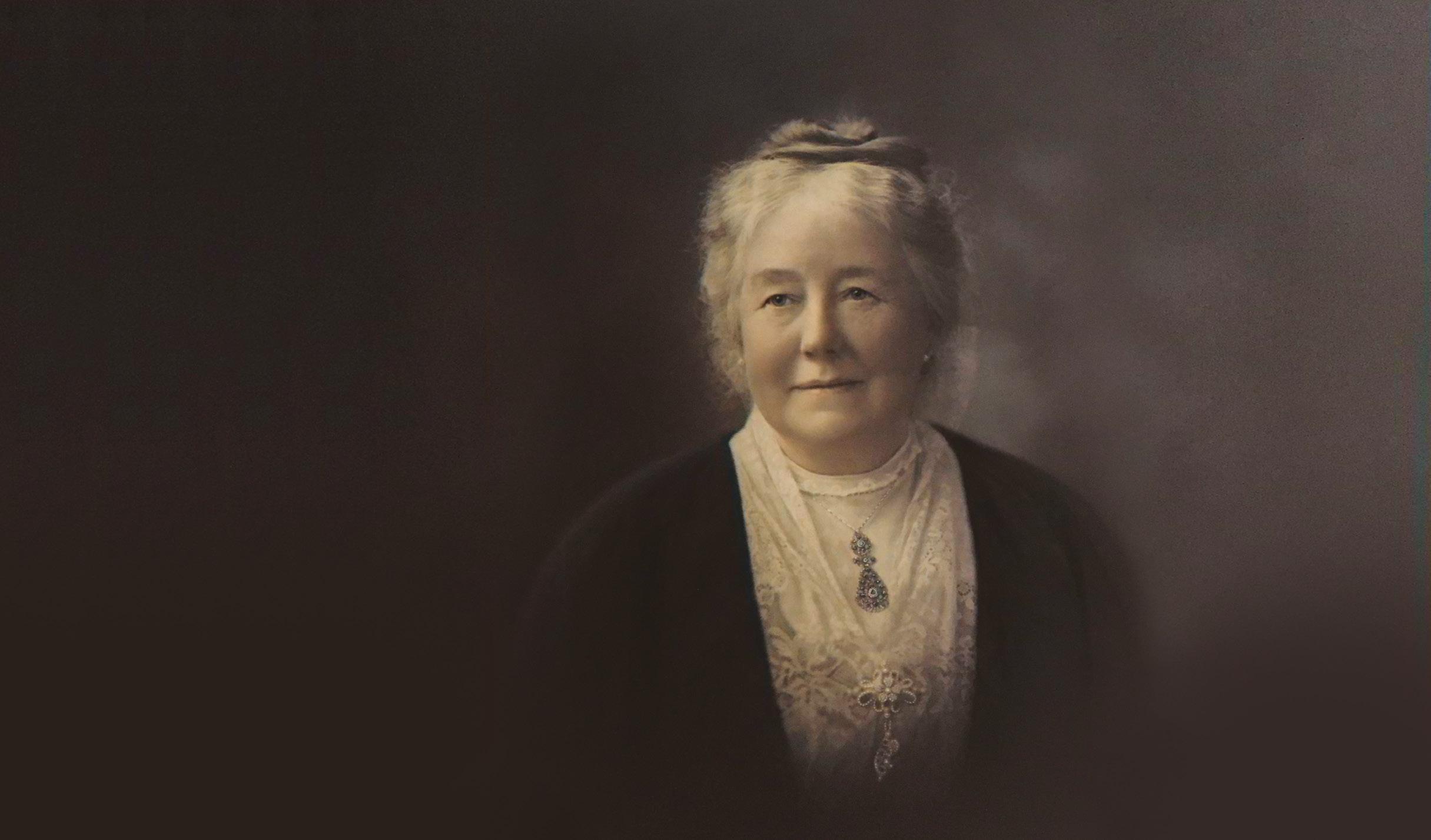
Emily Ward was an astute businesswoman and an educational pioneer. She set up Norland as the first educational establishment to offer any kind of childcare training, thus creating the profession of the nursery nurse and the foundations on which all nursery nurse training would be based. Prior to the introduction of formal training at Norland, children would be cared for by ‘untutored’ housemaids before going to school.
Training at Norland was focused on the founding principles of Fröbel, the German educationalist best known as the originator of the ‘kindergarten system’, and Emily Ward adapted them to be relevant to the needs of young children and their families.
Emily founded Norland on 25 September 1892. Her recently discovered notebook includes entries which date from 14 May 1892 through to 6 November 1919. The handwritten pages, some of which are on very fragile paper, contain personal insights into the life of Emily Ward in the founding days of Norland at its original site at Norland Place, London.
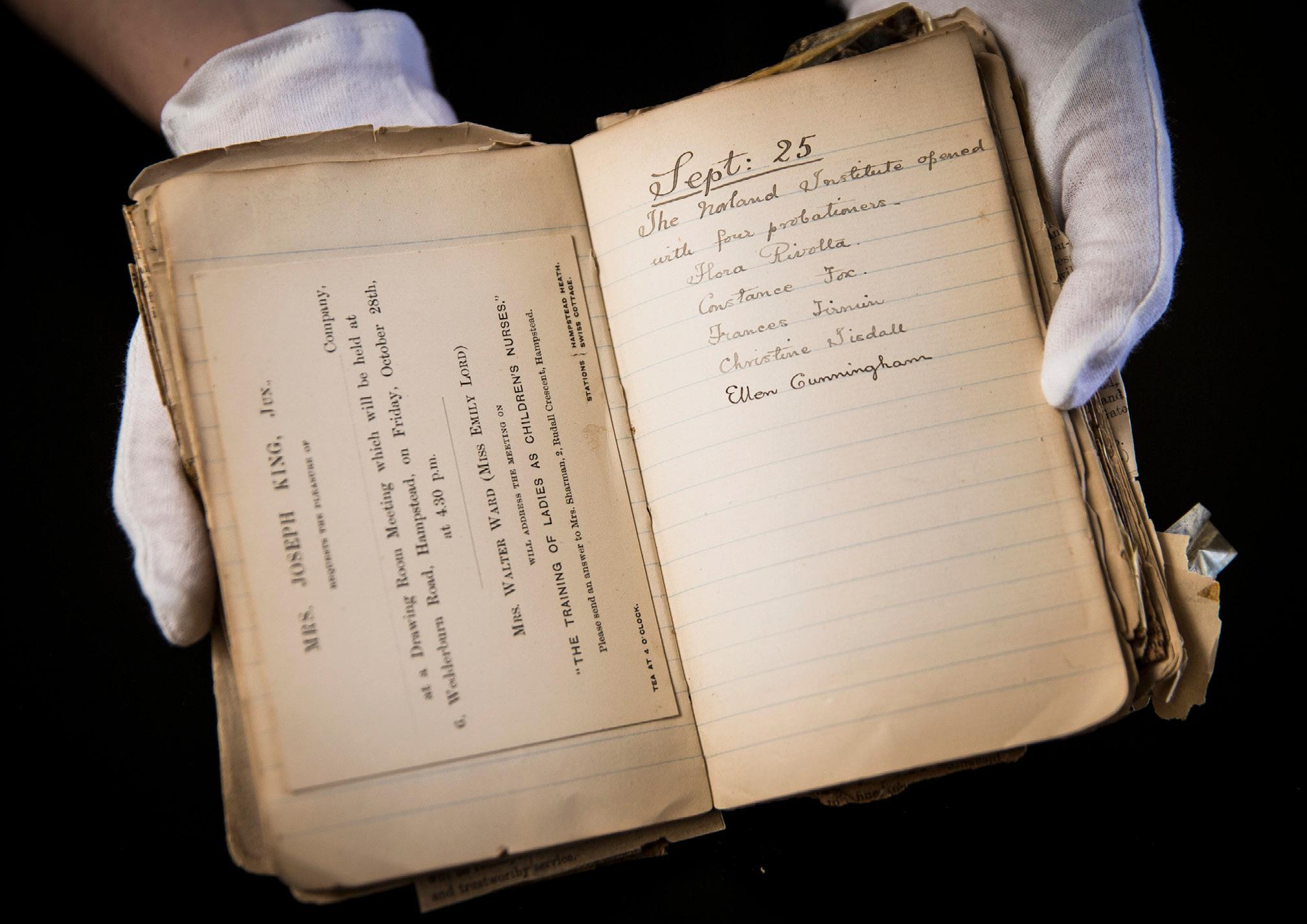
Emily
As well as changing location multiple times, Norland has constantly updated its curriculum, progressing with the times to offer the most up-to-date academic childcare training and education courses and the highest practice standards in line with the latest research. Throughout its constant development, Norland’s values have remained the same, with children being at the centre of all decisions and the Norland motto ‘Love Never Faileth’ being central to its values.
Since its founding, Norland has been recognised around the world as being at the forefront of early years education and training. This reputation continues, with Norland now offering an intensive academic degree and skills-based diploma programme, combining the most up-to-date research and knowledge with practical training. It is our students, past and present, who have been instrumental in establishing Norland’s position as the leader in early years education. Every student and Norlander carries the responsibility of maintaining our reputation to the highest of standards.
The black leather-bound A5 book contains over 120 pages of first-hand accounts of the founding days of the Norland Institute, as it was first known. The diary is also full of newspaper cuttings, invitations and documents which had been carefully secured onto the pages by Emily, giving a unique insight into the time. Ward’s legacy is immortalised through the Emily Ward Bursary, which provides students with the opportunity to obtain a grant towards meeting the cost of their tuition fees. Pages from Emily Ward’s notebook dated 25 September 1892, the day the Norland Institute opened Emily WardWhy choose to study at Norland?
At Norland, you will study for two distinctive, unique, yet fully integrated qualifications. Our new BA (Hons) Early Childhood Education and Care degree is a threeyear full-time course which combines undergraduatedegree-level study with practical sessions and experience with children, enabling you to put theory into practice. Modules include Keeping Children Safe, Practice in the Early Years 1: The Setting, The Baby: Conception to One Year: Growth, Learning and Development, Children’s Worlds Today and optional modules of A Focus on Cultivating Creativity, A Focus on Nature Play and A Focus on Nanny Hacks: Making the Ordinary Extraordinary.
Running alongside the degree, and for one year after you have left Norland, you will work towards achieving the prestigious new Norland diploma. It is this qualification that sets you apart from other early years professionals and adds an even greater array of practical skills and experience to your early years toolkit.
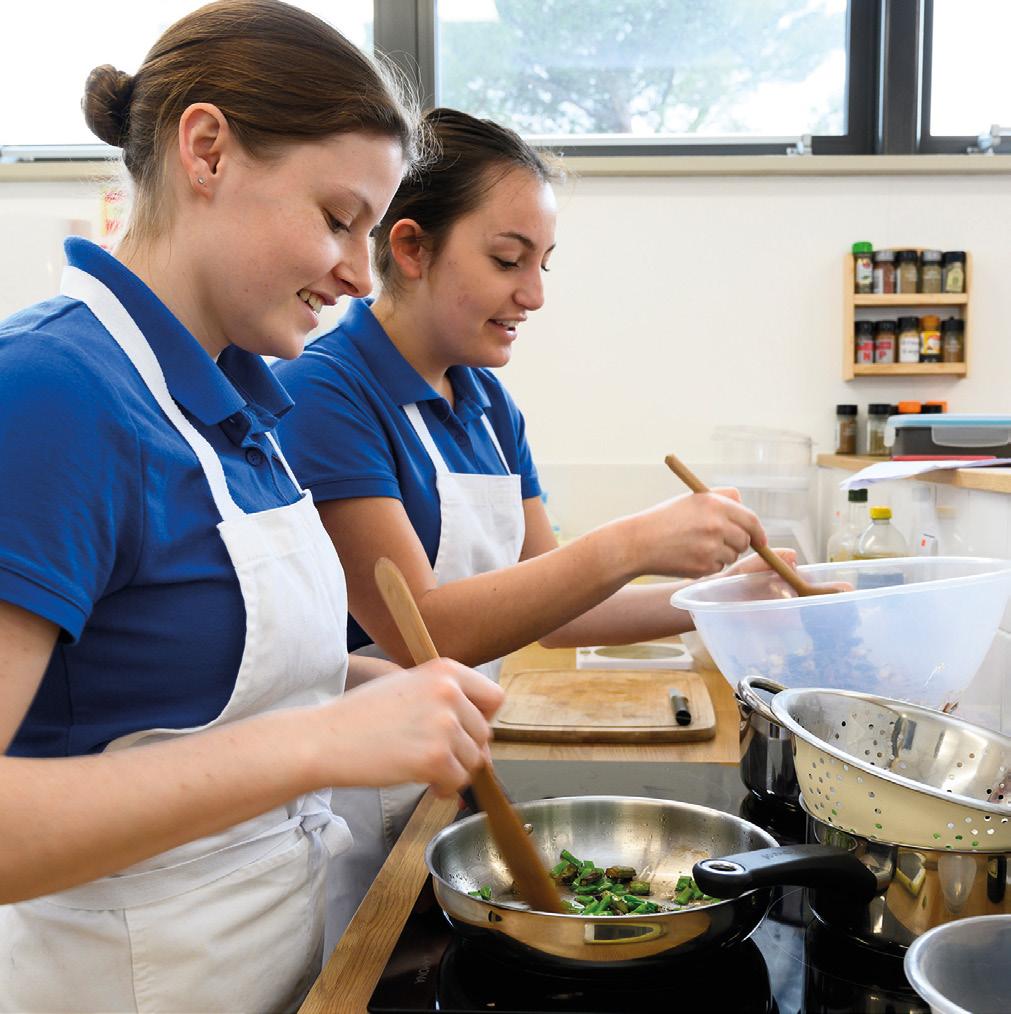
What will I learn on this course?
This course provides an unrivalled opportunity to develop your skills, knowledge and understanding of the early years. Our lecturers have a passion for this subject area and considerable professional and academic experience in education and working with families. Their teaching draws on many disciplines including psychology, neuroscience, child health, philosophy, social sciences and education.
What is different about studying at Norland?
Norland offers unparalleled training in the early years. You will develop theoretical knowledge through undergraduate study and build on this knowledge through practical application and extensive hands-on experience on the Norland diploma.
Guest speakers are regularly invited to Norland to give you an opportunity to listen to experts working in the field.
You are required to wear a uniform while studying at Norland and in placements. This instils a sense of responsibility and pride as you represent a long and prestigious history of the highest quality.

The Norland Code of Professional Responsibilities contains the professional standards that you, Newly Qualified Nannies and Norland graduates must uphold. The values and principles set out in the code are not negotiable or discretionary. They outline the behaviours and competencies expected of all those who are studying at, and have graduated from, Norland.
Fully qualified Norland graduates, known as Norlanders or Norland Nannies, also uniquely benefit from lifelong career support. The agency and alumni team works exclusively with Norlanders, ensuring graduates have outstanding employment and professional development opportunities upon leaving Norland and throughout their careers.
Each of the three years is divided into three trimesters with your time split between campus-based training and placements. You will undertake at least six placements over the three years.
In the third and final year of the degree, you will also be required to complete a work-based project on an early years topic of your choice. During the summer trimester of the third year, we focus on teaching you skills which will be relevant to your future employment. Among others, this includes first aid training, baby massage, employment contract advice, interview techniques, driving in arduous conditions and security training delivered by former military intelligence officers.
There are a number of different assessment methods for the degree and diploma courses at Norland. These include essays, presentations, vivas, portfolios, displays and a work-based project.
The Norland diploma is a distinctive and prestigious qualification which is studied alongside the degree course and for a fourth year following completion of the degree. This qualification will prepare you for all the practical aspects of the care and development of children in the early years as well as providing you with critical professional and life skills.
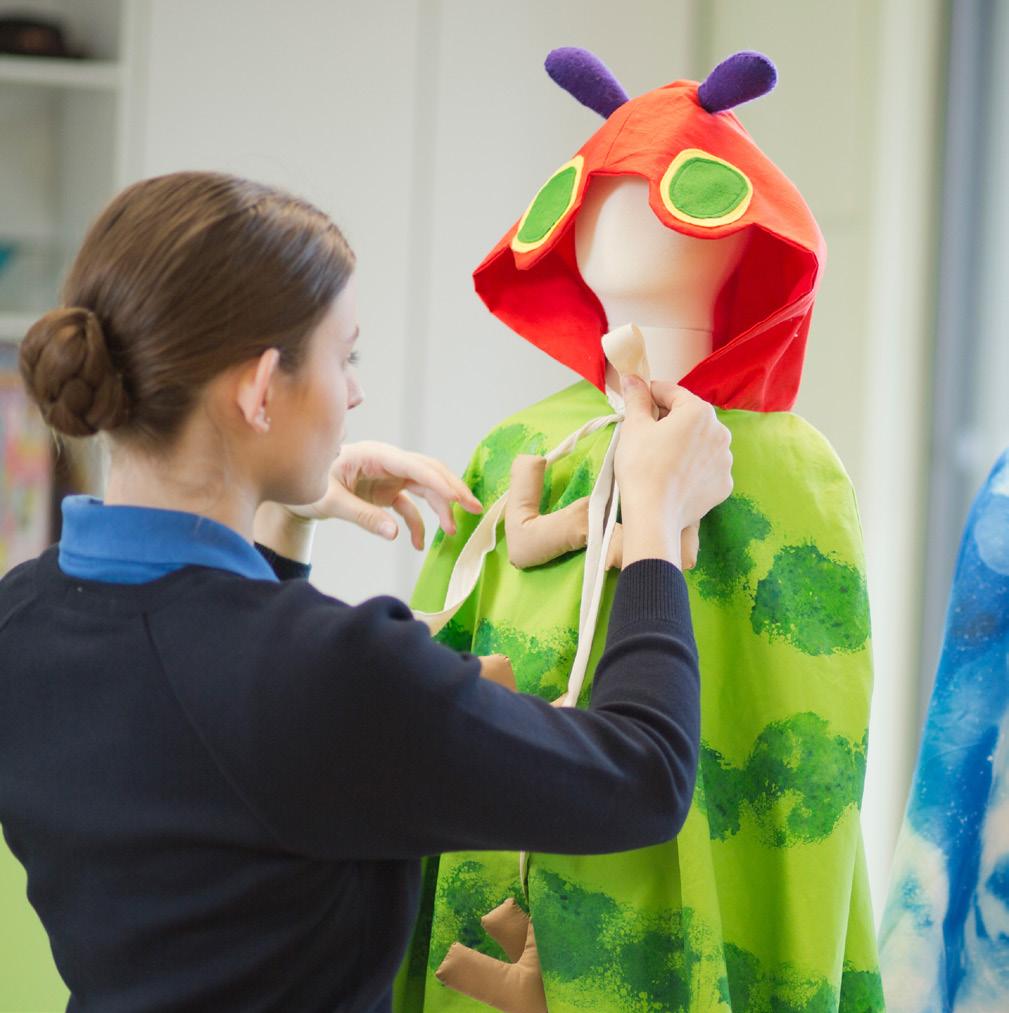
The final module of the diploma is the Newly Qualified Nanny (NQN) year, a 12-month probationary nanny post in paid full-time employment, arranged by Norland. There are no tuition fees to pay in the NQN year.


You must successfully complete not only your degree but also each element of the Norland diploma in order to use the professional title Norlander or Norland Nanny and gain access to the Norland Agency.

The Developing Practitioner (Core)
Practice in the Early Years 1: The Setting (Core)
Keeping Children Safe: Safeguarding and Child Protection (Core)
Learning, Development and Pedagogical Theory (Core)
Principles of Equality, Diversity and Inclusion (Core)
The Child’s Holistic Wellbeing (Core)
A Focus on Music, Drama and Theatre (Optional)
A Focus on Practical Science, Technology, Engineering and Maths (Optional)
A Focus on Children’s Literature and Phonics (Optional)
A Focus on Nature Play (Optional)
Students will choose one option in trimester 1 and one in trimester 2
Working Professionally with Parents and Carers (Core)
Practice in the Early Years 2: The Home (Core)
The Baby: Conception to One Year: Growth, Learning and Development (Core)
The Explorer and Inventor: Playful Pedagogical Philosophies in Early Childhood (Core)
Promoting Inclusion in Practice (Core)
Making Sense of Children’s Behaviour (Core)
A Focus on Supporting Schooling (Optional)
A Focus on Therapeutic Play (Optional)
A Focus on Cultivating Creativity (Optional)
A Focus on Supporting Loss (Optional)
Students will choose one option in trimester 1 and one in trimester 2
Developing Your Nanny Philosophy (Core)
Practice in the Early Years 3: Supporting Families through Leadership (Core)
Children’s Worlds Today (Core)
Work-Based Project (Core)
Promoting Health and Respecting Families (Core)
A Focus on Management and Leadership Skills in a Formal Household (Optional)
A Focus on Travelling with Children (Optional)
A Focus on Entrepreneurship for Nannies (Optional)
A Focus on Nanny Hacks: Making the Ordinary Extraordinary (Optional)
Students will choose one option in trimester 1 and one in trimester 2
For the most up-to-date course modules visit norland.ac.uk
Professional Skills 1 (Core)
NQN
Basic Care Skills (Core)
Let’s Play! (Core)
Transitions 1 (Core)
Foundation Cooking Skills (Core)
Cooking for and with Babies and Children (Core)
Diploma modules Diploma modules
Machine and Hand Sewing (Core)
Professional Skills 2 (Core)
Intermediate Care Skills (Core)
Playful Learning (Core)
Transitions 2 (Core)
Children’s Apron (Core) Fabric Friend (Core) ND 1.2: ND 1.4: F&N 1.2: Sewing 1.2: ND 2.2: ND 2.4: F&N 2.2: Sewing 2.2:
Managing Family Cooking (Core)
Children’s Appliquéd Learning Resource (Core)
Professional Skills 3 (Core)
Advanced Care Skills (Core)
Playful Environments (Core)
Transitions 3 (Core)
Celebration Cookery (Core)
Preparing for NQN (Core)
Fancy Dress (Core)
Children’s Quilted Blanket (Core)
Newly Qualified Nanny (NQN) year – 12 months in paid full-time employment (Core)
2 2 1
1 1 2
1 2 2 2 1 2 2 2 1 2
1
Trimester Trimester
1 2
Trimester 2 Year
I chose Norland because I knew I wanted to have a career working with children and wanted to go to the best place to train. I looked at other university courses but found there was no practical or placement element to their course, which is something I believe is essential when the career is so practical. When attending an open day, I saw the pride the students had in Norland. The lecturers were so passionate about the subject and this was relayed to the students.
I’m bilingual, originally from Spain, and I moved to England in 2008 and have lived in Grimsby ever since. Prior to Norland, I was babysitting and nannying privately while also working as a care worker for the elderly.
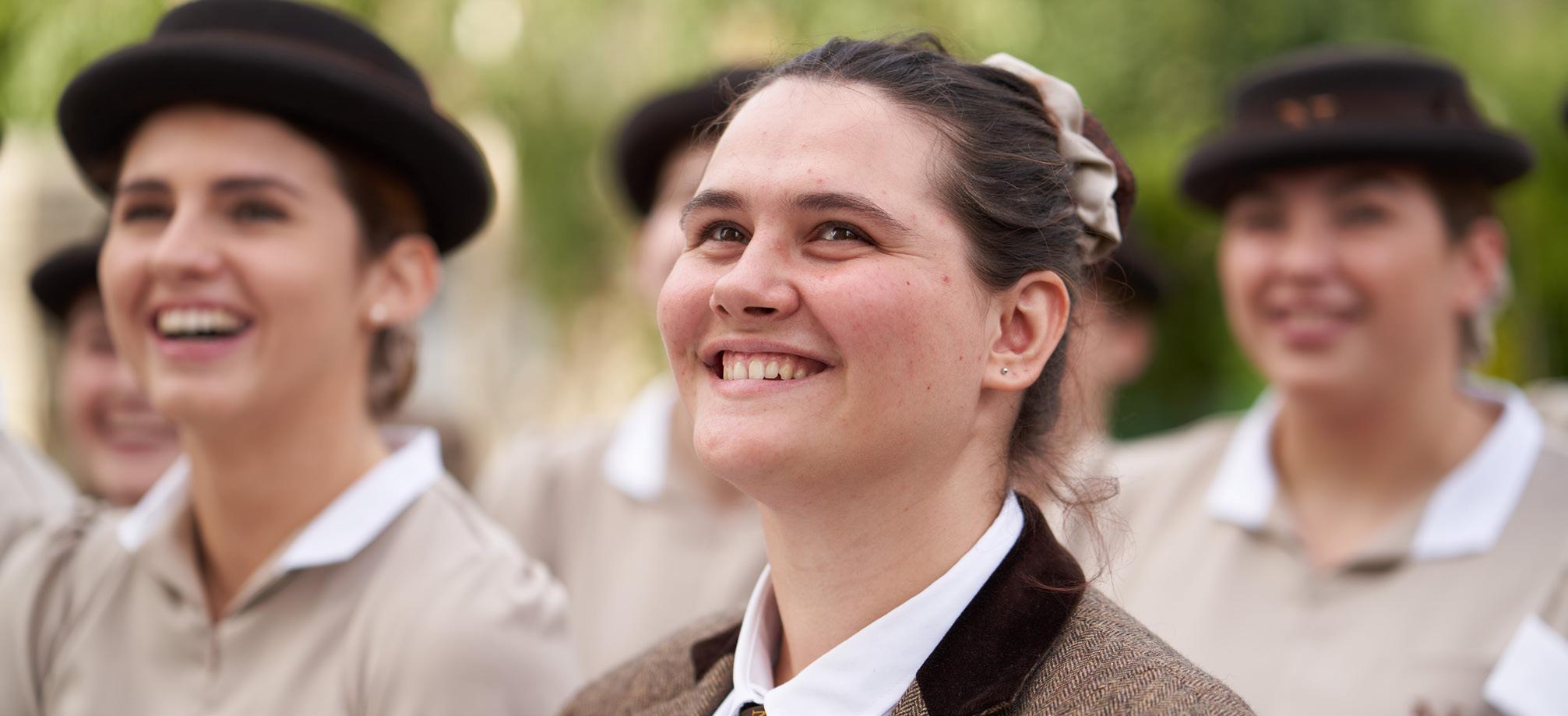
I found out about Norland through my tutor towards the end of my first year studying a Level 3 childcare course. I had previously mentioned to them that I was interested in nannying and looking at different agencies within London. However, I still felt underprepared to start full-time nannying. This is when my tutor mentioned Norland to me and encouraged me to research the college and see what I thought. Upon researching Norland and reading everything about it, I just fell in love with everything about the place.
My first year at Norland and in Bath has been really exciting. Getting to move out and be completely independent was really thrilling for me! I had a lot of fun being able to walk to new places and get lost in a new city. My highlights so far have been the jobs I have had, even as a student, participating in open days and my new life in Bath.
Before coming to Norland, I worked for a care company for about two years. I was able to save up about £2,000 to put towards the costs of living away from home. I use all my student finance to fund my tuition fees and the rest is covered by earnings from my jobs. I’ve had a few jobs since starting at Norland. These have included jobs through the student job shop such as nannying at weddings.
I fit my work around my timetable. Helping in the library is good, as once I’ve completed all my jobs for the evening, I can sit and do a bit of my coursework. It‘s the same with the night shifts – I can work on my assignments through the night when I have time.
Some people may be lucky and have parents that are able to help cover some of their study costs. My parents would prefer I ask them for help if I’m really struggling. I use my maintenance loan of around £9,000 per year to support living costs and if I have any spare, then I put it towards my tuition fees.
I also receive an Emily Ward bursary from Norland. I tend to put it in a backup savings account and then when it’s the beginning of the month I move across the overall amount of money I need for things such as rent or food. My advice is to complete the bursary application as soon as Norland sends the email to you.
A definite highlight will always be the placements. Placements confirmed to me that nannying is a career I love and can’t wait to do full-time. You build such great bonds with the family. Placements allow you to apply all the knowledge you learn to practice. I really believe that with every placement I undertake, my practice and professionalism improve.
I love Bath! Firstly, it’s the most beautiful city to be in and has so much culture. When the sun is out, the Royal Crescent is full of people enjoying the sun in the most beautiful place in Bath. Secondly, it’s filled with students as Bath has two other universities and there is always something to do. In the summer, there is Bath on the Beach when, as the name suggests, part of the park is filled with sand and sun-loungers. In the winter, there is Bath on Ice where the park becomes an ice rink.
Norland students have access to Bath Spa University’s Student Union and I’m part of their rowing club. I wanted to join a sports club to meet new people and
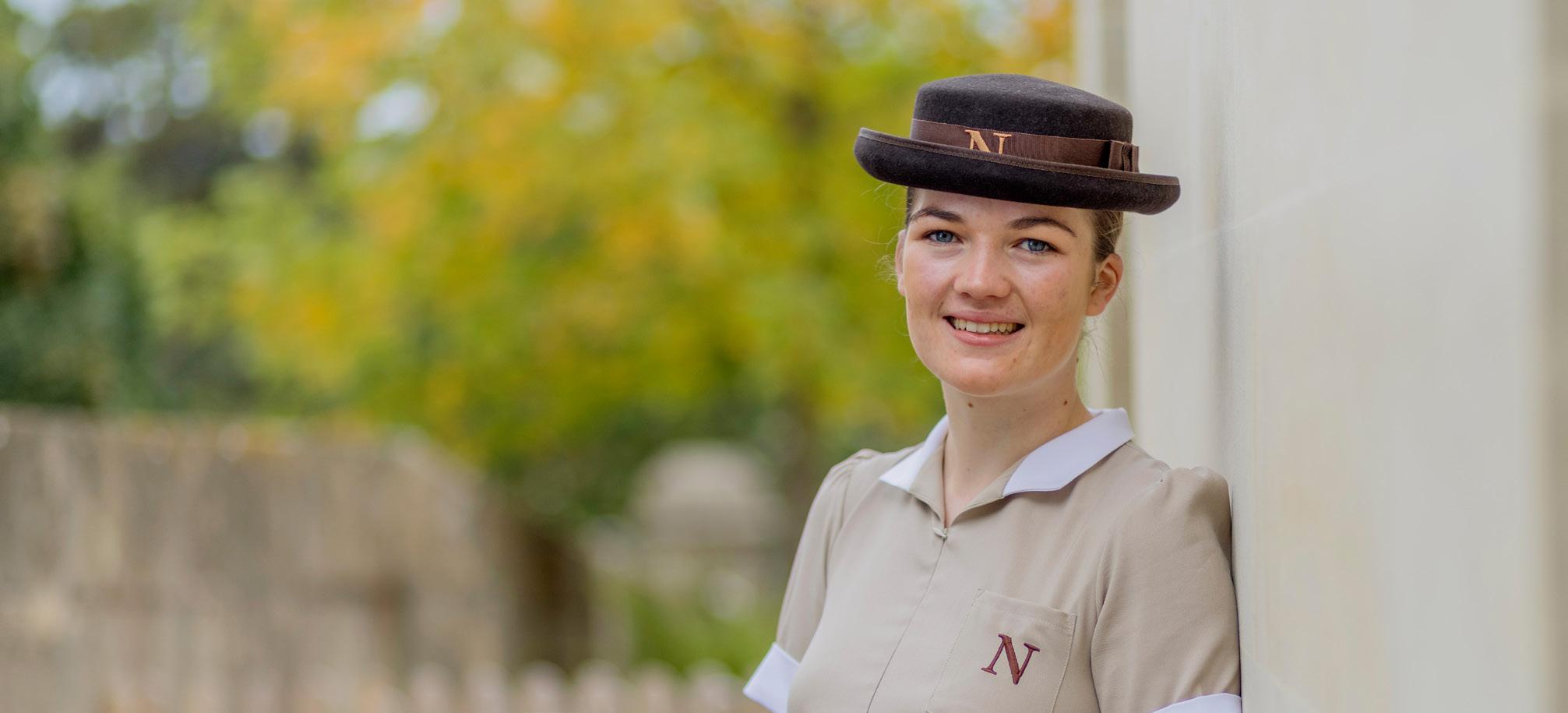
take up a new sport. I’d never tried rowing before but was warmly welcomed by the club and was taught the basics. After a couple of months, I completed my first regatta. I feel it is really important to put yourself out of your comfort zone and that paid off for me. I now have a group of friends from Bath Spa University and attend their sport socials each week where I get to meet other students from different sport clubs.
My main worry before coming to Norland was if I was going to get a ‘normal’ university life. At Norland, you study both the degree and diploma, which includes placements. At first it can feel like a juggle, but now I can see the benefits and rewards for my hard work at Norland and have found a way to balance my social life and university work. I’ve been able to find friends outside of Norland which helps the balance as well.
“I love Bath! It’s the most beautiful city to be in and has so much culture.”
Annie #WeAreNorland
“My first year at Norland and in Bath has been really exciting.”
Rhianna #WeAreNorland
A degree from Norland is unlike any other early years qualification. It’s the value-added elements of our curriculum which truly make it a degree with a difference.
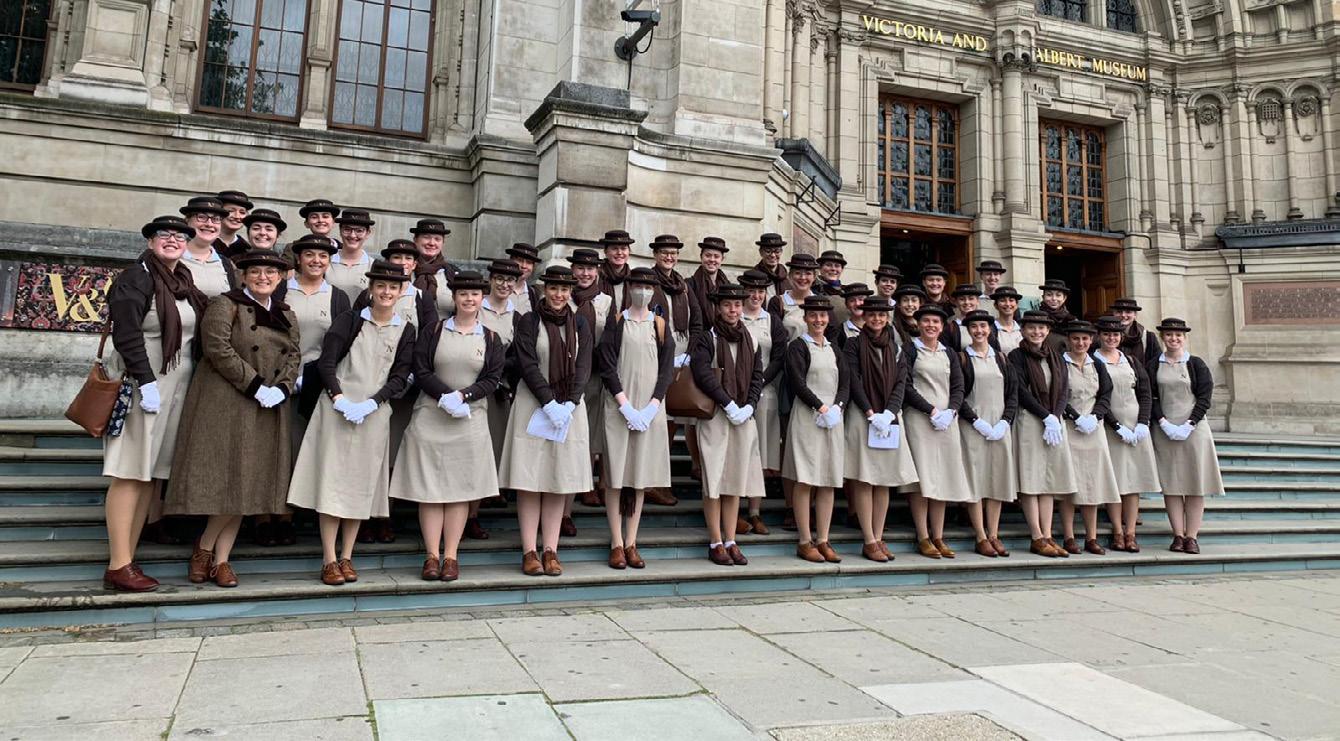
Emotion Coaching is based on the principle that nurturing and emotionally supportive relationships provide optimal contexts for the promotion of children’s outcomes and resilience. Dr Janet Rose, Principal of Norland, early years specialist, author, researcher and emotion coaching expert, delivers a thorough introduction to the subject.

Opened in 2005, the egg is the only children’s theatre outside London. One of their practitioners delivers a three-hour workshop to you in your first term. Drama helps you to build relationships, learn names and teambuild so that the group you are in will begin to form the bonds that will support you through your training. You also experience drama games that you will take to your placements to enjoy with the children in your care.
Since 2017, students at Norland have been taught by former military intelligence officers. The training includes lessons on how to stay safe online and how to deal with potential security risks.
As an early bonding opportunity, in your first year, you visit Thoulstone Park in Wiltshire during Welcome Week. In partnership with Wiltshire Outdoor Learning

Team (WOLT), you get to take part in a range of outdoor activities, from canoeing to forest walks.
Beach and forest schools
While studying at Norland, you have the opportunity to explore beach and forest schools first-hand. Both days are spent outdoors creating and developing a range of activities for children of various ages. These experiential activities are important for developing reflective practice.
Makaton (optional)
While studying at Norland, you have the option to learn Makaton in a course taught over six weeks. Makaton is a sign and symbol language that can be used alongside speech to help children in their early years communicate while their spoken language skills develop. Signing can give carers a greater understanding of a baby’s wants and needs, which can help reduce frustration. Signing while speaking has been shown to encourage the development of communication and language skills. This exclusive course is available only to Norland students.
There is an additional charge for this course. Visit our website for more information.
When you are in your third year, Polly Chadwick from BumpBirthBabyUK delivers an informative workshop on infant massage with a focus on connection, communication and closeness. Exploring the origins of this worldwide practice and teaching you about the benefits of using infant massage on babies and infants, the workshop offers a deep insight into how baby massage promotes positive nurturing touch and beneficial connections between parent/caregiver and child. You learn how this ancient art connects deeply with infants and can help you to understand their nonverbal language and respond with love and respectful listening, as well as how it can empower you as a caregiver.
Situated at Charlton Farm in North Somerset, Children’s Hospice South West (CHSW) cares for children and families who live in South Gloucestershire, Bath and North East Somerset, West Wiltshire, Bristol, and North Somerset. The hospice is an imaginative restoration of a listed farm and farm buildings, which has retained the homely feel of the farmhouse and yet provides stunning and spacious accommodation. In your second year, you are taken along to one of the open days to give you an insight into the running of a hospice. The open day also introduces you to the environment and to volunteers who keep the hospice open through fundraising.
Guest lecturers are regularly welcomed to Norland to share their expert knowledge and experience in a range of fields. The programme* is updated each year to ensure you have access to the very latest early years research and expertise throughout your three years of training.
Example guest lectures include:
• A lecture on anti-discriminatory practice by Aaron Bradbury, chair of the LGBTQUIA+ early years working group. This masterclass looks at how to support children to treat others with respect, as well as how to tackle sensitive issues with children in helping to create an inclusive society.
• A physical development lecture that takes you on a developmental journey. Led by an expert in the field, this masterclass starts by investigating reflexes and how these underpin neurodevelopment in babies and young children, and goes on to explore how physical development can support all of the other areas of learning. This knowledge will help you to develop activities which support holistic wellbeing and physical development.
Self-defence trainer Andrew Tombling is a 7th degree black belt in tae kwon do. He travels all over the UK to deliver training and is well respected in tae kwon do circles. He offers you a three-hour workshop in selfdefence in the early stages of training. Self-defence is revisited with you in the final year of the degree as a refresher, but also with emphasis on protecting your charges who may be in buggies, prams or walking.
In your first year, you spend a day devoted to the Norland diploma programme at the beach. Spending the whole day in the outdoors, you explore a range of activities transferable for use with children of all ages. A lovely way to round off the first year of study at Norland.
This is a realistic and effective process of learning skid control driving techniques and the ideal safe environment to test your handling skills. You will undertake skid pan driving in your final year during Employment Weeks to ensure you’re able to control a car under any circumstances, including for instance the most adverse weather conditions, handling distractions from children in the vehicle and other potential hazards and risks.

A series of lectures and activities developed for you when you are in your final year, in advance of your Newly Qualified Nanny (NQN) year. In addition to security and cybersecurity training, this year’s schedule* includes:
• Baby massage
• London orientation
• Bereavement coaching
• Finance and contracts
• Fire safety
• First aid
• Interview techniques
• Debrett’s training
The purpose of the Norland diploma is to prepare you for the practical aspects of the care and development of children in the early years. It equips you with the practical skills and competencies required to support children and families at a senior level or in sole charge within an early years environment, whether in a setting or a family home.

Modules are based on play, development and wellbeing.
You will also learn additional professional skills required to work with children – including good timekeeping, team-working, excellent communication skills and respect for and love of children – and gain a strong understanding of and respect for confidentiality. These skills are taught throughout your training and culminate in a final module in your fourth year dedicated to employment: the Newly Qualified Nanny year (see below).
On completion of this course, you will be able to link theory to practice and will become a reflective practitioner through teaching, reflection and lots of hands-on experience. It is the attainment of this prestigious qualification that distinguishes Norland graduates from other early years professionals and makes them highly sought after.
The new Norland diploma is an additional qualification you will work towards with modules integrated with the new degree.
Placements are an integral part of the study experience at Norland. Across the three yea rs, just over half of your time will be spent on campus while just under half will be spent gaining extensive practical experience in early years placements. Our students work in early years settings in and around Bath and south-west London. Settings typically include hospitals, nurseries, schools, a special educational needs setting and family environments – both ‘living in’ and ‘living out’.
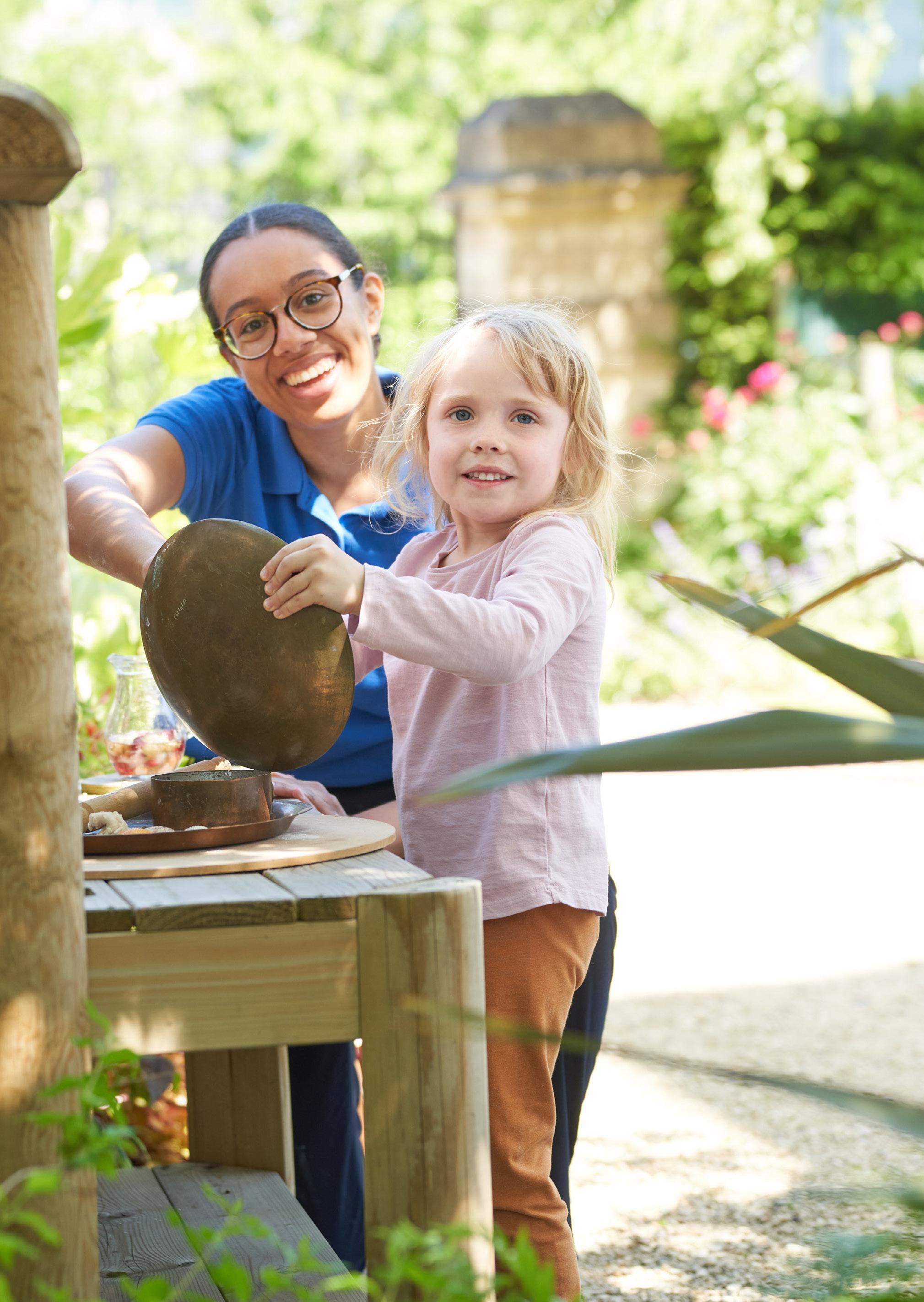
Having regular placements provides vital experience that will prepare you to deal with the real-world scenarios you are likely to face after graduating. Having this wealth of experience in your toolkit is part of what makes you so instantly employable as a Norlander.
1,318 placement hours
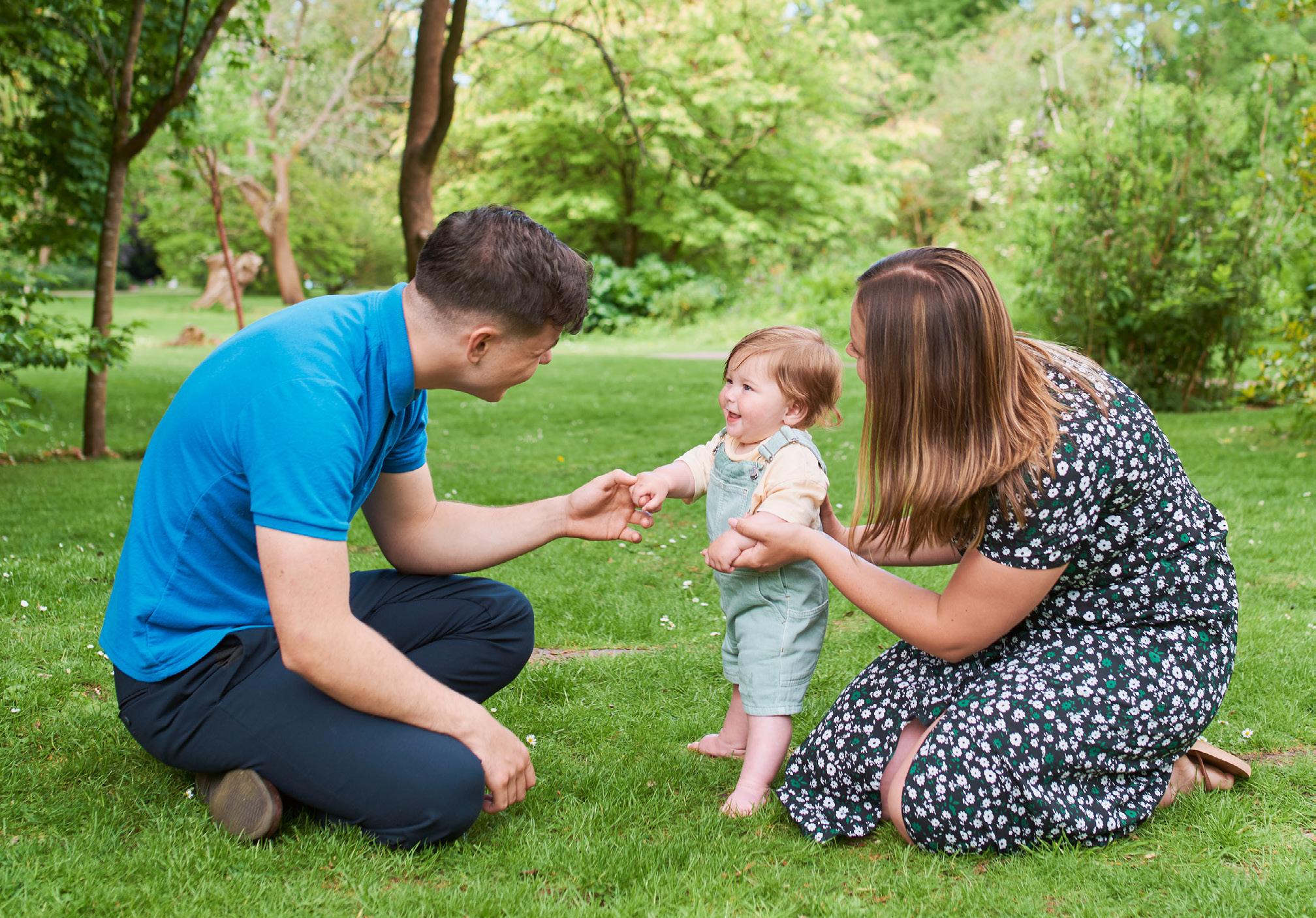
“We get to experience so many settings, including nurseries, special educational needs schools, forest schools, hospitals and families.”
Molly #WeAreNorland
Following the successful completion of three years at Norland and having earned your BA (Hons) in Early Childhood Education and Care, you will embark on your final module of the Norland diploma.
There are no tuition fees to pay in your Newly Qualified Nanny (NQN) year. As an NQN, you will spend 12 months as a probationary nanny in paid full-time employment arranged through the NQN team. This first fully supported position will help you to develop your skills and build on what you have learned during your time at Norland, while having a dedicated team on hand. You will continue to be assessed during the NQN year.
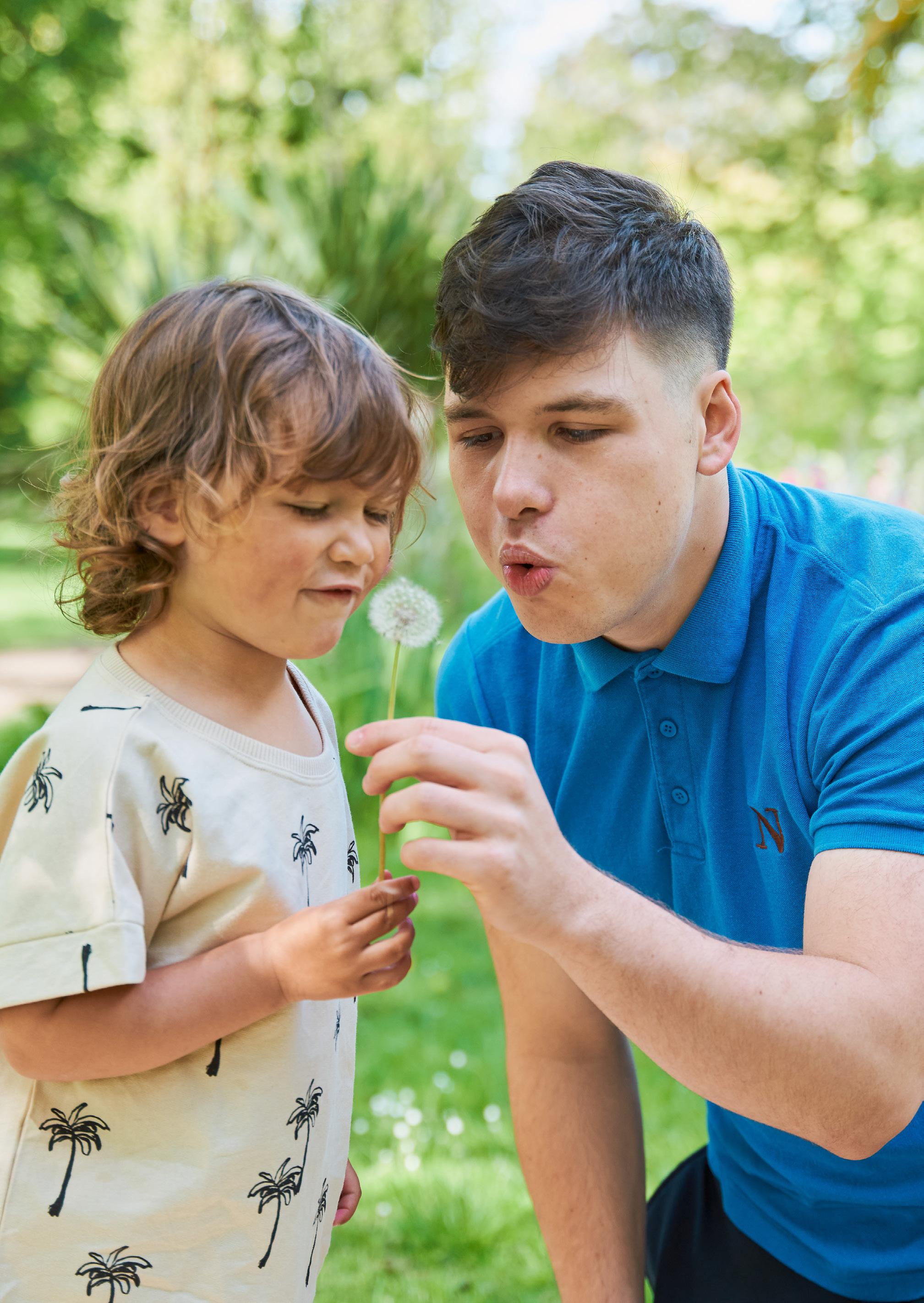
The purpose of the NQN year is to enable you to gain confidence and experience as you enter the workplace for the first time as a nanny, while being supported by Norland and your employer. The NQN year ensures that the high standards expected of Norland graduates are maintained in practice. This unique combination of high-level academic qualifications and extensive practical experience is what sets Norland graduates apart from others in the early years sector.
As you approach the end of the NQN year, your very own dedicated employment agency, the Norland Agency, will work with you to help you to decide on the next steps in your career path.
Successful completion of the NQN year will result in the award of the prestigious Norland diploma and badge, registration with the Norland Agency and access to its jobs database, the professional title Norlander or Norland Nanny, and the lifelong support of Norland
Norland has set up its own Professional Association of Norlanders (PAN), which all qualified Norlanders are invited to join as part of their commitment to upholding the Norland Code of Professional Responsibilities. In setting up PAN, Norland has committed to maintaining standards and up-to-date practice in line with research and developments within the early years sector.
Membership comes with a range of benefits and stands as a mark of quality within the early years profession and with employers. Students are automatically enrolled for free as Student Members. A small annual membership fee is payable from the start of the NQN year.
4th year

My name is Matthew and I have just finished my third year at Norland. I am 27 years old. I spent my childhood growing up in Brussels in Belgium and I’ve been working in childcare since I was 16. My entire working life has been focused on working with children. I have had many jobs in childcare and have enjoyed every one of them.
I started out working as a babysitter, which evolved into full-time nannying. I then moved to working for an outdoor activity company at residential centres around the UK. I started to become interested in winter sports and this took me to the wintery peaks of the French Alps. Working in partnership with Belgian schools, I helped run their winter ski trips. I ended up in Switzerland where I was hired as a maintenance and ski-lift operator, but I found myself becoming involved with the children’s ski club where I supported the practitioners with English-speaking guests.
When I became a nanny in Greece, I really started to gain more early years experience, developing a strong work ethic and being selected as a one-to-one nanny. When a guest required full-time support during their holiday, I was on hand to provide it. My time in Greece fortified my desire to pursue a career in childcare. In between seasons, I worked with schools and families in Brussels to provide after-school care and pick-ups and drop-offs.
I then arrived in France, once again, to work for another holiday company providing a full-time crèche for guests. My partner had been given a Norland prospectus by her mum and I found myself reading and re-reading it. Among the pages, there were photos of a male student. This fascinated me and over many hours of discussion with my partner and colleagues, I became more interested. I found myself having a ‘you’ve got nothing to lose’ moment. This rapidly followed an afternoon off-piste, as I sat at the reception desk of the chalet typing my application. Without doubt, a pivotal moment in my life.
The academic teaching at Norland has been of a high standard, and I’ve genuinely enjoyed working through the degree and diploma modules. It has been hard work personally and definitely needs to be taken seriously. Both the cooking and sewing lectures have been great fun. I’ve surprised myself with how much I’ve enjoyed sewing. The self-defence classes and the practical masterclasses have been very good and a nice addition to my overall training. Overall, the academic side and the placements have been the stand-out highlights for me.
So far, my Norland experience has left me with no doubts that my investment has been a sound one. As a mature student, I find student finance support ample and support myself with paid work during term times. There is plenty of work for Norland students in and around Bath. Norland is an investment in yourself.

“Norlanders carry a never-ending passion for caring f0r and supporting children and families.”
Matthew #WeAreNorland
Norland Agency: working exclusively with Norlanders since 1892.
Norland’s dedicated in-house employment agency is as old as Norland itself, set up in parallel with the Norland Institute to place the first cohort of nannies into employment. There are not many professions which can offer guaranteed employment opportunities, but, at the Norland Agency, demand from families for qualified Norland graduates (Norlanders) outstripped supply from day one and continues to do so today.
The lifelong support for Norlanders is also something which has continued since the early days of Norland. In those days the Norland Quarterly publication was used to seek and offer help and support. Emily Ward set up the Quarterly to be a platform for nurses swapping news as well as sharing childcare advice, building on their own experiences as they travelled from nursery to nursery.
Today’s Norlanders turn to the private Norlander Facebook group for peer support and can telephone or email the agency and alumni department or simply call in. Although the methods of communication have changed, the fact remains that once someone has graduated from Norland, they never lose their connection with the Norland community.
Norlanders can always be sure of support and friendship, whenever and wherever they are in the world.
The Norland Agency continues to work exclusively with Norland graduates to place them in positions all over the world, working as nannies and maternity practitioners. Once qualified, Norlanders have exclusive access to a list of clients who specifically

want to employ a Norland Nanny through the Norland Agency.
Graduates can register for access to the secure online job list where they can search through a huge variety of positions. Those placed through the Norland Agency are employed in positions where they are able to travel to exotic and exciting locations with the family, live abroad or work across the UK.
Visit our website for examples of Norlanders who have gone on to be a nanny, a maternity practitioner, a nursery manager, a paediatric nurse, a teacher, a lecturer and an early years ski instructor, as well as examples of those who have pursued further study.
We’re smaller than other higher education institutions, so you’ll experience a close-knit, warm and friendly environment.


Norland students make the most of everything the city has to offer. Bath has a large student population, ensuring there is always something to do. Our students also benefit from access to Bath Spa Students’ Union clubs along with its societies, sports teams and more. The city centre is easily accessible and small enough to explore on foot, with excellent bus links to and from student accommodation areas. For those times when the bustle of a larger city is required, Bath offers excellent rail links, with Bristol only 15 minutes away, and London can be reached in an hour and 25 minutes.

“Applying to Norland is the best thing I’ve ever done. It has given me so much confidence.”
Sophie #WeAreNorland
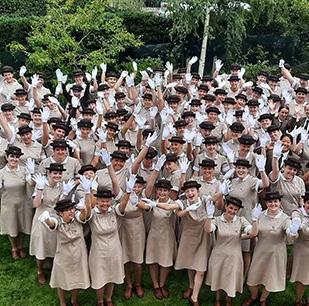
My name is Marie. I’m from a small town in southwest Germany and I’m part of Set 45 at Norland, having started my studies in September 2021. Prior to coming to Norland, I finished my A levels (‘Abitur’) in Germany, was an au pair in the US for a year and then started studying to become a secondary school teacher. However, I ended my studies early to be able to come to Norland.
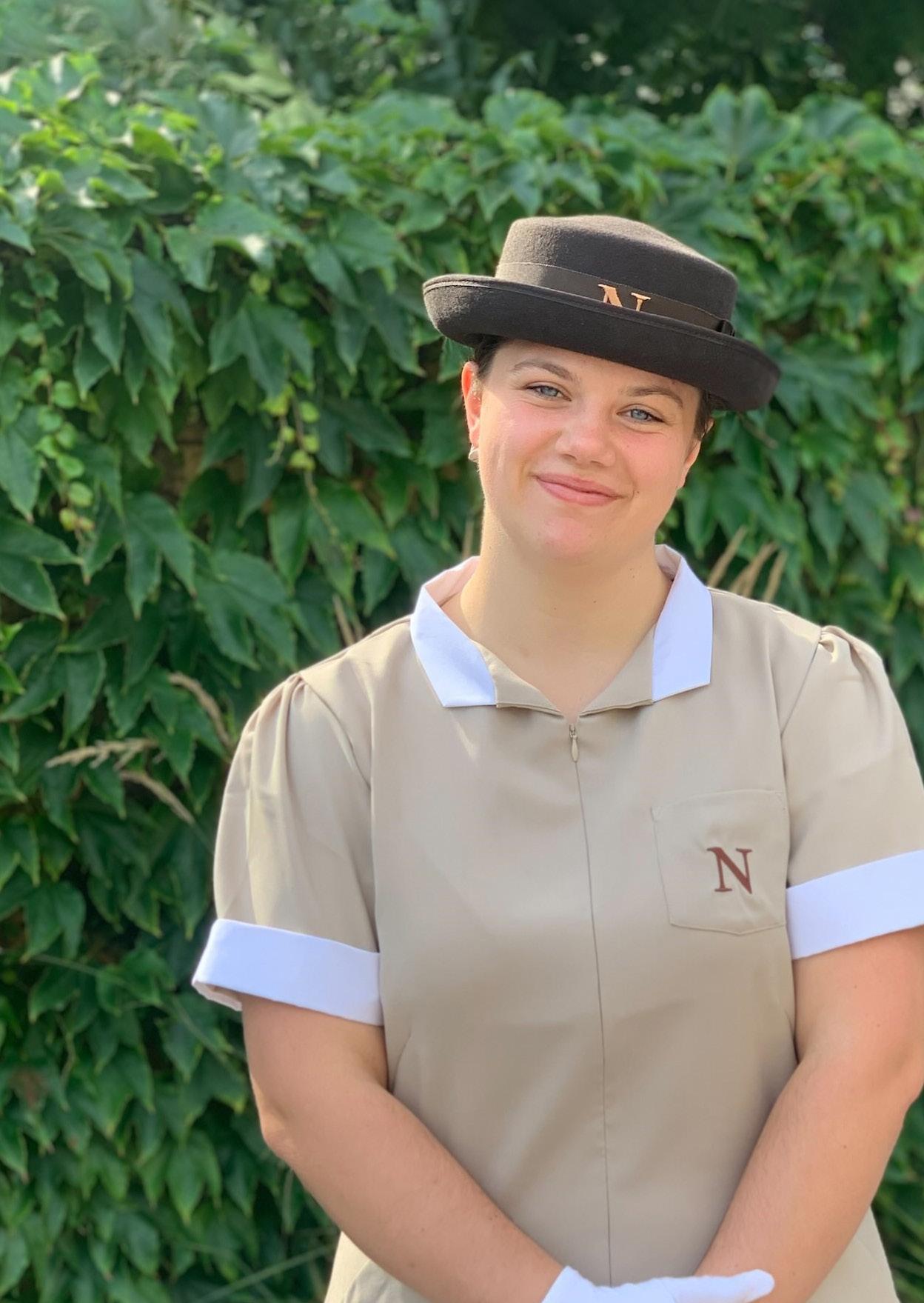
I have always had a passion for working with children. While living in Germany, I nannied and was an assistant sports coach working with children and youth groups.
Everything I read about Norland really resonated with me. I felt like it was the right fit for me and how I imagined my education to be. At the heart of all teaching and work at Norland is the unique child and Norland’s founding motto ‘Love Never Faileth’. Both of these aspects are really important to me; it feels amazing to know that I’m surrounded by people that have the same passion for working with children as I do.
Another reason I chose Norland is the way it teaches its students. I personally learn best when I get to apply theoretical knowledge directly to practical work, and Norland’s curriculum with its combination of degree and diploma modules provides me with this opportunity. This made my move to Bath an easy decision!
I settled in nicely to both Norland and Bath. Norland provides students with the opportunity to request accommodation, which is a great way to make sure that you know people before your first day and avoid feeling lonely or out of place. My housemates and I spent a lot of time together in the first few weeks to bond and get to know each other. That and being open to talk to new people and get to know my classmates has helped me make friends and settle in quickly.
Even though I made my decision because of Norland itself and not where it’s located, I’ve really come to like Bath. It’s a lovely British city, that feels safe, and there are many things to do and see and it’s just a great place for students.
I’ve already learned so many new skills and gained so much knowledge that it’s truly hard to pick one single thing that has been my favourite. However, I enjoy the practical parts of my studies very much. All the things I learned in food and nutrition and projects I’ve done in sewing were so much fun. It’s great to see yourself getting more confident and improving your skills.
If you’re thinking about applying, I can urge you to just do it! Norland is everything I expected it to be and even more. I couldn’t be happier to have come here to get this amazing education. It is a big change and it’s normal to miss your home, your family and everything that makes you love your home country. Just keep focused on all the adventures you are going to experience and get to tell everyone about.
“At the heart of all teaching and work at Norland is the unique child and Norland’s founding motto ‘Love Never Faileth’.”
Marie #WeAreNorland
The Norland student support service is here to help you with any of your learning support or pastoral needs and to help answer any questions you have about the issues that affect you throughout your time at Norland.

Your personal tutor is your first point of contact to help with any questions or address any difficulties you may have with your assignments and studies. During Welcome Week, you will meet your personal tutor and be assigned to a tutor group.
Our student support team are here to help you with any questions or address any issues you may have. We offer a completely free, confidential and supportive service designed to fit in with your needs. You can ask about almost anything. Common enquiries include registering with local GP surgeries, how to plan and write essays, requests to speak to a counsellor, information on obtaining extra time, and how to bridge the gap between further and higher education. Advice and support is also shared from the @NorlandSupport Twitter account.
Our counsellors provide private, one-to-one sessions with students on request. Loneliness, homesickness and stress are normal parts of the university experience and can often be overwhelming. Similarly, we know that anxiety and depression affect a great many people. Seeking support is a real sign of strength. You are not alone and we can help. Each student is entitled to six free counselling sessions throughout their time at Norland. We also work with other charities and organisations to help provide additional support and guidance.
We subscribe to Togetherall, an award-winning digital support service offering a safe and anonymous support and recovery space that is free for you to use. It is available 24 hours a day, 7 days a week, and you can use it to help you deal with everything from everyday stresses to major life events.
We offer a wide range of support for students with specific educational needs and/or disabilities. Our student support team can work with you to help develop your study skills in one-to-one and small group sessions. We also provide extra time and other reasonable adjustments for students where eligible. We provide help and guidance for students who wish to apply for Disabled Students’ Allowances.
We also offer academic skills sessions and special seminars based on your learning requirements, including lectures on referencing, essay-writing, journal use and independent study techniques. Our student support team are here to help you discuss and achieve your study goals and to provide support to enable you to take ownership of your learning.
It’s an exciting time to be part of Norland. The growth in student numbers over recent years has seen teaching and learning move to a new campus in the Oldfield Park area of Bath, enabling us to enrol 100 new students each year.

Our Oldfield Park building was opened in 2017, following a multi-million-pound refurbishment. It houses state-ofthe-art lecture rooms, a large conference room for guest lectures and a simulated nursery area with direct access to the garden, as well as a purpose-built kitchen for food and nutrition teaching.
York Place, the campus on Bath’s London Road, has been retained for use for our Newly Qualified Nanny (NQN) support team, the agency and alumni team, and graduate continuing professional development training, as well as external consultancy and training. Some classes are also taught at York Place.
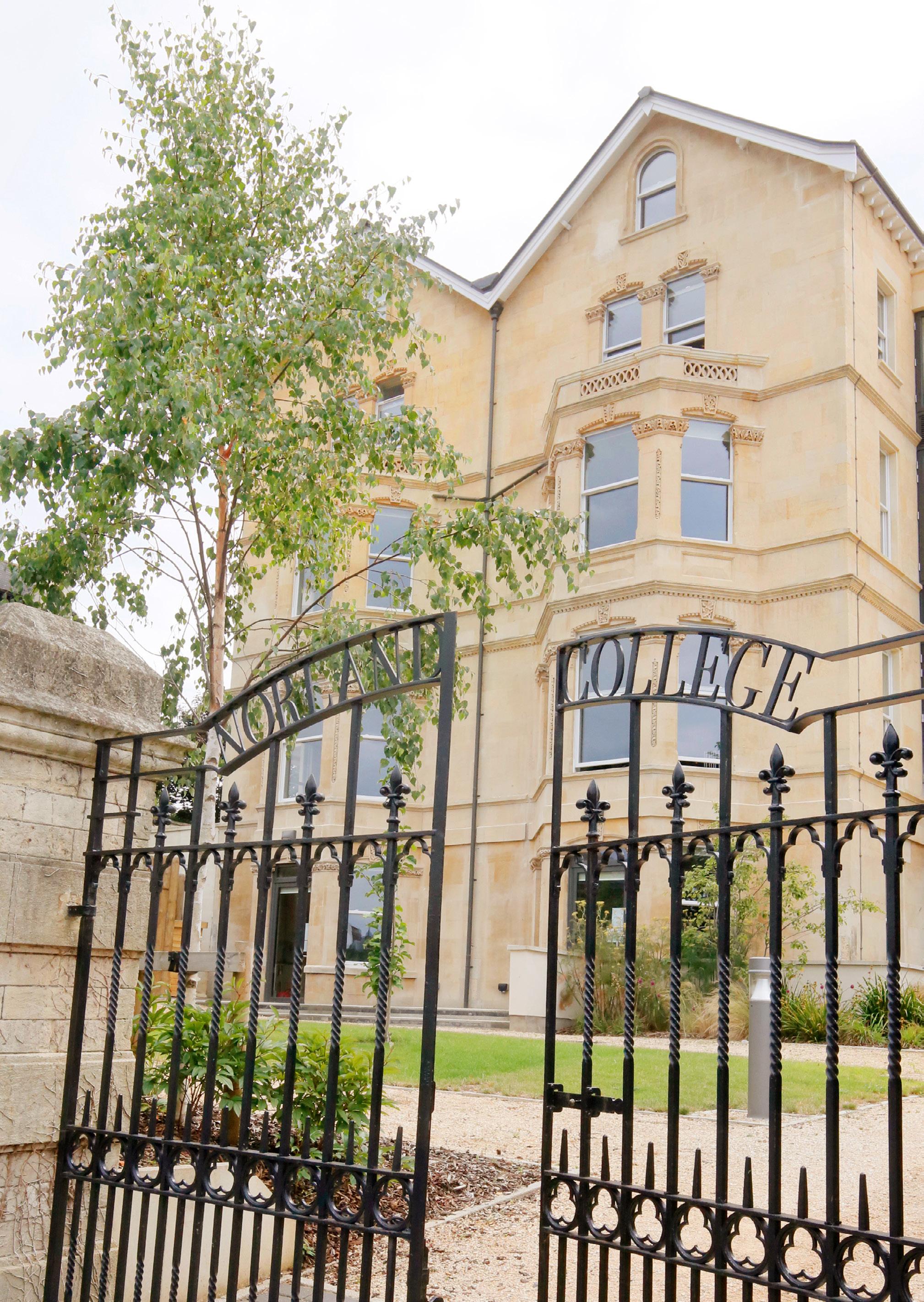
I grew up in Brighton with the most incredible parents and three sisters. My three sisters and I were all adopted, two from China, and me and my sister from Vietnam. Seeing my parents raise four children will always be my motivation to provide the best possible care.

Since choosing my GCSE options, I have always known that I wanted to pursue a career in the early years. I have always wanted a job whereby I can make people happy and working with children certainly fulfils that dream. A job in the early years will never feel like work because it’s something I love and have a passion for.
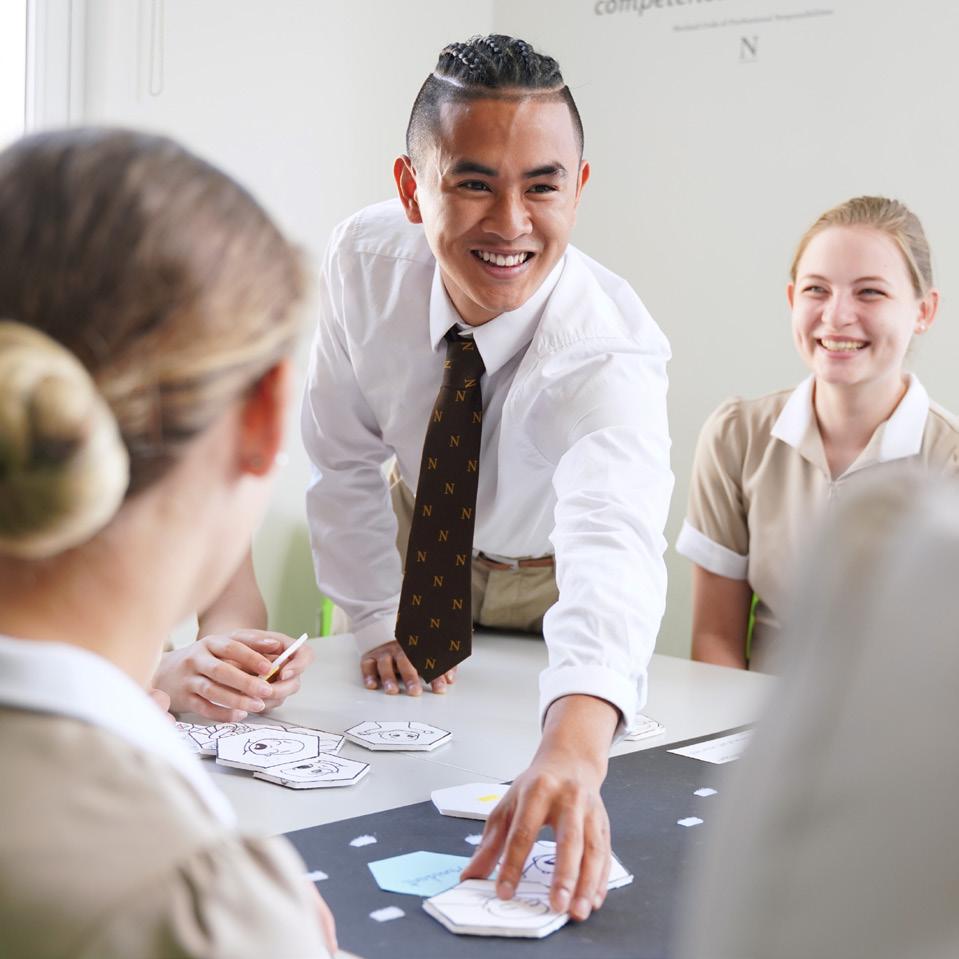
I think that it’s very important to have more men working in the early years. I believe that being a male in this line of work goes against the usual stereotype for a child carer. This is exactly why it’s important so that children can see that job roles are not based around gender and that they can grow up to be whoever they want to be.
My time at Norland so far has been an extraordinary adventure. I have learned many new skills, and opportunities have arisen from the course. For example, I never thought I would be having weekly sewing lessons! I have also had very engaging masterclasses, including self-defence, bottle feeding and nappy changing. My favourite part is the two-hour
weekly cooking lessons. Everything is provided and the recipes are so delicious. From cooking basic eggs to deboning fish and meats, we are being equipped with substantial kitchen skills.
Overall, nothing can beat the placements. At Norland, you’re able to experience placements in a variety of settings and put the theory that you’re learning in lectures into practice. I cannot explain how rewarding working with children is. Although it may be very tiring, it brings me much joy to know I am part of the reason a child is smiling.
If you have a passion for working in early years, I highly recommend Norland. Not only does it provide you with the most respected childcare status, but it equips you with skills that only the Norland diploma can offer. The endless job opportunities that come up are amazing. Norland is great as it’s not all based around academic study. It’s very practical, and if you have the drive to work with children you can definitely succeed here.
My plan is to go to America and work on the east and west coasts. After I have saved up, my dream is to open a cooking school for children. I believe that children need to be provided with more information on what a nutritional balanced diet is to reduce chances of obesity and further health problems.
“My time at Norland so far has been an extraordinary adventure.”
Ike #WeAreNorland
As a UNESCO World Heritage Site, Bath is a beautiful and historic city in which to live and study. Based in south-west England, only one hour and 25 minutes from London by train, Bath offers a vibrant city life with easy access to the countryside.

Bath is a popular student city, with students accounting for almost a quarter of the population, and is home to a diverse range of shops, galleries, museums, clubs, cafes, bars, restaurants, theatres, festivals and leisure activities. Norland’s central location, just a 20-minute stroll from Bath’s historic centre, ensures that you benefit from easy access to all that the city has to offer.
There are plenty of opportunities to participate in your favourite sport. Bath has several gyms and fitness centres to help you stay active.
Cycling – The Sustrans Avon Cycleway route links Bristol and Bath to the National Cycle Network.
Walking – The city is situated at one end of the Cotswold Way, a great footpath to explore. Also, the National Trust’s Bath Skyline Walk is a fantastic sixmile circular route taking in some amazing views.
For relaxation – The Thermae Bath Spa, which uses Bath’s natural thermal waters, is a major attraction among tourists and residents. It offers a full range of spa treatments and features an open-air rooftop pool.
Head to visitbath.co.uk for further inspiration.
Bath has a fantastic reputation for its range and quality of cafes, teashops, pubs and restaurants. It boasts the highest number of Michelin-rated restaurants outside London, but you can still eat out cheaply. Its wide range of places to eat means there is something to suit every budget, and all within easy walking distance of the city centre.
Bath hosts an extensive calendar of events and activities throughout the year. These include the Bath Festival (a 10-day multi-arts event); film, comedy and literature festivals; the Bath Fringe Festival; and Bath International Music Festival, to name but a few. Other events include the Bath Christmas Market, and rugby union games, which the much-loved Bath Rugby club hosts throughout the season at the Recreation Ground.
The Theatre Royal is one of the oldest and most beautiful theatres in Britain. It is a major touring venue and regularly features famous actors and actresses. Attached to this is the egg, a fantastic theatre that offers some of the best work for children and family audiences. For smaller productions there is also the Rondo Theatre, the Mission Theatre and Ustinov Studio (which is the base for the Theatre Royal’s Youth Theatre).
If films are your thing, the Little Theatre in the centre of town is an art-house cinema which offers screenings of independent, mainstream and world cinema. The annual Bath Film Festival shows a good selection of premieres. Bath also has a bigger eight-screen Odeon cinema, where you can watch all of the latest blockbusters.
Norland does not have its own accommodation, but students live in shared student houses across the city of Bath. This enables them to fully immerse themselves in student life outside of Norland training and learn essential life skills.
Although students are responsible for finding their own accommodation in their second and third years, Norland secures a number of places in houses across the city each year for first-year students. When you are offered a place at Norland you will be asked if you would like us to help you find your first-year accommodation and, if so, we will then place you into a house with other Norland students, which has been visited and vetted by a member of staff. All bedrooms are furnished with a bed, desk, drawers and a wardrobe.
All accommodation sourced by Norland is within walking distance or a bus ride from campus. Although we place you in these houses, please note that accommodation contracts are strictly between the student and the letting agent or landlord.


“My time at Norland has been an absolute dream and I cannot believe my journey is nearing its end.”
Rosanna #WeAreNorland
Norland offers a welcoming, nurturing and inclusive community in the heart of historic Bath in southwest England. Each year, we’re delighted to welcome a small number of international students who benefit from our world-famous high-quality training and the outstanding international career opportunities and lifelong career support we offer.
As an international student, you’ll receive tailored support through the application process and throughout your studies. You’ll also have access to your own dedicated International Student Manager to guide you through the visa application and immigration process and to provide specific support during your time at Norland.
Once you graduate as a fully qualified Norlander, you’ll receive lifelong career support and your pick of jobs around the world through your very own dedicated employment agency. Established in parallel with Norland 130 years ago, the Norland Agency continues to offer many more jobs than there are Norlanders seeking them in locations all around the world. With your Norland qualifications behind you, the world really will be your oyster.
You should apply to study at Norland through the UK’s Universities and Colleges Admissions Service (UCAS), as detailed on the ‘How to apply’ page on the Norland website.
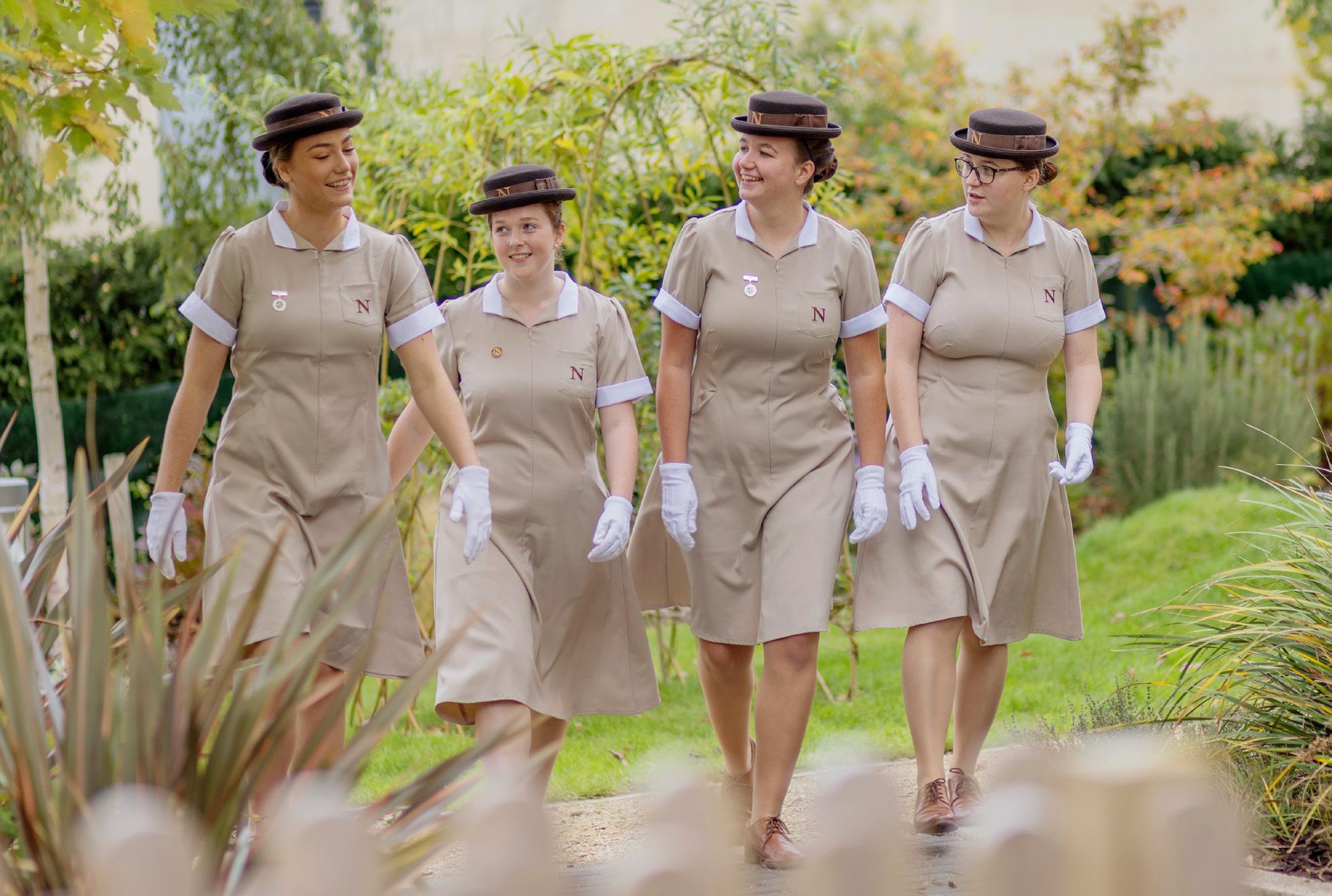
If you are offered a place to study at Norland, you will be issued with a Confirmation of Acceptance for Studies (CAS) unique reference number by email. You will need to have this CAS number in order to apply for your visa.
Once you have received your CAS number from Norland, you must apply for your visa online via the UK government website. You must apply for your visa within six months of receiving your CAS. The cost to apply for a student visa from outside the UK is currently £363. If you are coming to the UK to study on a student visa for the first time, then you must apply for your visa from your home country before you travel.
Before starting the visa application process, it is important you understand and prepare the following required documents:
• a passport that will be valid for the duration of your course
• a CAS from Norland
• proof you have enough money to support yourself and pay for your course – this will vary depending on your circumstances
• original qualifications and English language documents as listed in the ‘evidence provided’ section of your CAS
• certified translations of any of the required documents used that are not in English
• if applicable, a police registration certificate
• if applicable, your tuberculosis test results.
Biometric Residence Permit
EU and EEA nationals who have used the UK Immigration: ID check app receive their visa in the form of an online digital status. Along with the online digital status, you will also receive an accompanying letter from the Home Office to confirm that your immigration permission has been granted. This letter also contains instructions on what you should do if you notice any errors with your digital status. The International Student Manager will ask to see your digital status and can help you if you do notice any errors.
EU and EEA nationals will not receive a Biometric Residence Permit (BRP). For other international students, you will receive a BRP. A BRP is an identification card that you will be issued with upon successful completion of your visa application. It can be used to confirm your identity, right to study in the UK, and right to any public services or benefits you are entitled to.
You will be asked to provide your fingerprints and photo for your BRP as part of your visa application. If you apply for your visa from outside the UK, you will need to collect your BRP once you arrive in the UK. Further information about collecting your BRP will be provided in your visa decision letter.
You will also need to bring your BRP to Norland for us to take and store a copy as part of our sponsor recordkeeping duties for UK Visas and Immigration (UKVI).
As you will be coming to the UK for longer than six months, you will be required to pay a mandatory immigration health surcharge to access the National Health Service (NHS). You pay the surcharge either when you make your visa application online, or when you book an appointment. You can start using the NHS when you have paid the healthcare surcharge and your visa has been granted. You will still need to pay for certain types of services, such as prescriptions, dental treatment and eye tests. When you access healthcare in the UK, you may need to provide your Biometric Residence Permit (BRP) or prove your status online using a share code, if you have a digital immigration status.
Further information on all aspects of the application process for international students and on all of the information and documents required is detailed on the ‘International students’ page on our website.
If you have any questions about any aspect of the application process or about studying at Norland or living in the UK, please contact the International Student Manager at admissions@norland.ac.uk.
“This is where England started to feel like home.”
Jessica #WeAreNorland
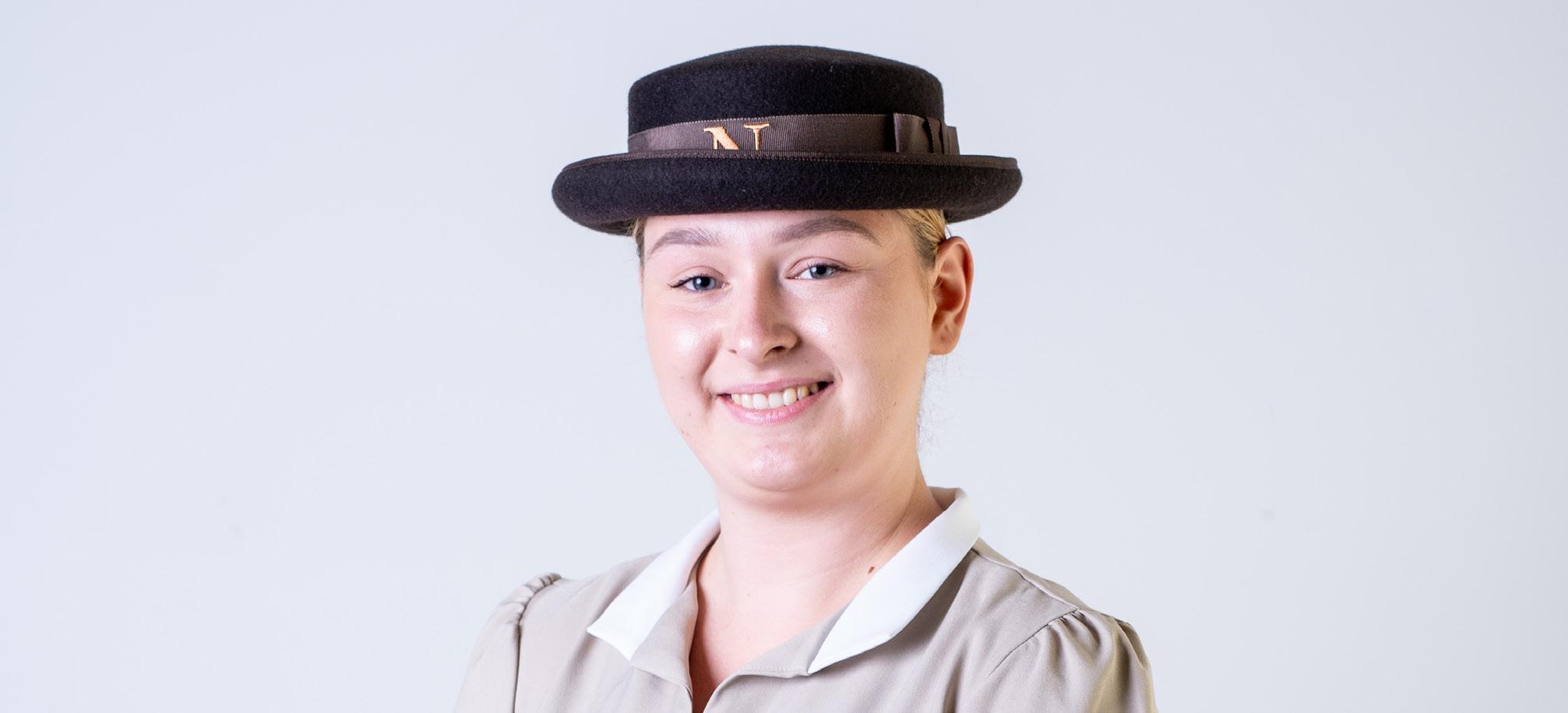
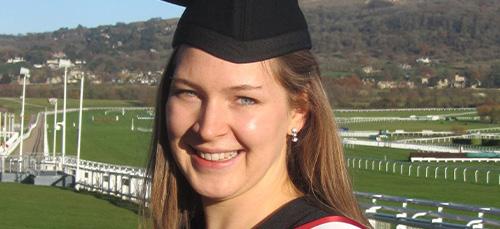
I joined Norland as a mature international student, having already gained a lot of experience working with children. I came across a TV documentary about Norland while browsing YouTube. After an amazing and unforgettable open day, I knew Norland was the perfect fit for me.
I’ve always loved being around children and always knew I wanted to make caring for children my profession one day.
I can highly recommend studying at Norland to any international students. I never had any trouble being ‘foreign’ – quite the opposite! Everybody was curious to hear from me about how children were brought up in my home country, and it was interesting to compare our cultural differences. Whenever I needed support with any academic work or the English language, I was always supported and respected by all the staff and students. I didn’t get homesick as I made some amazing friends at Norland who supported me through all the good and challenging times.
I had a great time at Norland and in Bath as an international student. In the set above, there were two German students who supported me from day one (and who are now two of my very best friends). Being placed in a flat with other Norland students in my first year definitely helped me settle in very quickly. Joining the Norland Choir helped me to feel like I belonged and enabled me to find like-minded people with the same interest in music.
I loved that almost half of my time at Norland was spent in placements where I was able to put into practice what we had learned in lectures. I gained so many precious experiences and memories. I remember my first placement with a private family was a huge learning curve that provided a valuable insight into my future life as a nanny.
When I graduated, I stayed with my probationary nanny family for another year before taking on a range of temporary roles so that I could work with different age groups and get a chance to work for families all over Europe. I then decided to study for a master’s degree in early childhood studies in London. After that I worked for a family in the US. I’m now in my second position in Germany and have found my dream family. I hope that I’ll be here for a long time now!
Having been a qualified nanny for a few years, I can say that employers love having an international nanny! Nearly every employer I’ve had so far was interested in me teaching their children another language or teaching them about my culture. So far, being international has always been a bonus when applying for new jobs.
I moved to Bath and lived in a lovely town house that I shared with six other first-year Norland students. At the beginning, I was a bit concerned about how we would get on because I am a bit older, but we got on really well. All my housemates were lovely and really excited to start studying at Norland.
Bath is a small city but has the perfect combination of city and country life. I explored Bath together with my housemates. We walked to the Royal Crescent, went shopping, took an open-top city bus tour, and many other things in the first few weeks to get to know each other and Bath.
At Norland, everyone is really friendly. It is quite small, which means lecturers know you by name and everything is on a personal level. If you are struggling with something, the staff will always take the time to have a chat and help you. I know that the fees at Norland can be quite overwhelming, but don’t worry, the finance team are very helpful.
My favourite parts of the course are definitely the practical aspects. I love our food and nutrition sessions where we learn different recipes and cover important
information on nutrition and dietary requirements. Placements are a really exciting part of the training. You get to go to a nursery, a school, a hospital, and work with families and in other settings, and help them by sharing your knowledge, and at the same time you gain new experiences. We also have sewing. I never thought I would say this, but I really enjoy sewing now and look forward to new projects! I hadn’t sewn before Norland and it was quite stressful in my first year when we made bunting, which was our first project, but now I am really impressed when I look back at what I have created. My message for any international students who are thinking of applying to Norland is just go for it. If you love children and have a passion for working with them, then come to Norland. I know the whole process is a little bit more complicated for international students, but it’s definitely worth it. Norland is the best place you can study, and you’ll earn a top-class early years degree alongside the prestigious Norland diploma. There is no course that can compare to Norland, it’s just unique. You also get to live in the beautiful city of Bath and make friends for life!
“Norland is the best place you can study.” Anja #WeAreNorland
“Being international has always been a bonus when applying for new jobs.”
Maggie #WeAreNorland
For applicants, the academic entry requirements for this course are:
• A minimum of 96 UCAS points. We accept A levels, SCQF Level 6/7 and alternative qualifications at Level 3 such as T Levels, CACHE, BTEC qualifications, International Baccalaureate and Access to HE Diploma in all subjects. You do not need to have an early years or childcare-related qualification to apply to Norland.
• A minimum of five GCSEs (which should include English Language and Maths) at grade 4 or above (or grade C and above) or equivalent prior to application.
If you are unsure whether your qualifications will meet our criteria, you can use the UCAS Tariff Calculator or contact our admissions team by emailing admissions@ norland.ac.uk.
Norland welcomes applications from international students. Norland holds a student sponsor licence, which means we can sponsor a limited number of international students to obtain a student visa to study with us. Places for international students are dependent on a successful visa application. Guidelines for international academic entry requirements are available on our website.
Applicants must be able to demonstrate that they have sufficient English language competence to complete their programme of study. It is expected that applicants with English as an additional language will undertake IELTS (International English Language Testing System) and achieve an overall band of 6.0 with no less than 6.0 in each component skill. Applicants applying for a student visa must have a SELT (Secure English Language Test). To meet this requirement, Norland requires an IELTS for UKVI (Academic) test with an overall band of 6.0 with no less than 6 in each component skill, or equivalent. See ielts.org for more information.
Studying for our early years degree involves a considerable amount of time spent working with children; therefore, acceptance is subject to a satisfactory Disclosure and Barring Service (DBS) (formerly known as the Criminal Records Bureau) Enhanced Disclosure check. Further details will be
sent to you after you have made your application.
Graduates of Norland are expected to update their DBS every three years, or register onto the DBS update service.
If you are an international student, as well as completing the DBS application at the start of your course, you will need a police certificate or a certificate of good conduct from your country of residence.
Students who qualify as Norlanders may work without supervision with babies, young children and their families. Accordingly, Norland has a responsibility to ensure that students are fit to practise under these circumstances. Fitness to practise will be assessed at application and throughout your time with us, including prior to and throughout the NQN year.
An offer of a place to study at Norland is conditional upon the applicant being deemed fit to practise. Please refer to the Fitness to Practise Policy, which can be found at norland.ac.uk, for more details.
Norland is committed to safeguarding and ensuring the welfare of children, young people and vulnerable adults. We expect all students and staff to share this commitment.
The suitability of all prospective students and staff will be assessed during the recruitment process in line with this commitment. All offers made will be on the condition of relevant safer recruitment checks being conducted and in line with Norland policies and procedures.
The Norland Code of Professional Responsibilities applies to all Norland students and Norlanders (Norland graduates). As a Norland student, you will be expected to adhere to the code fully and to act at all times in such a manner as to justify trust and confidence.
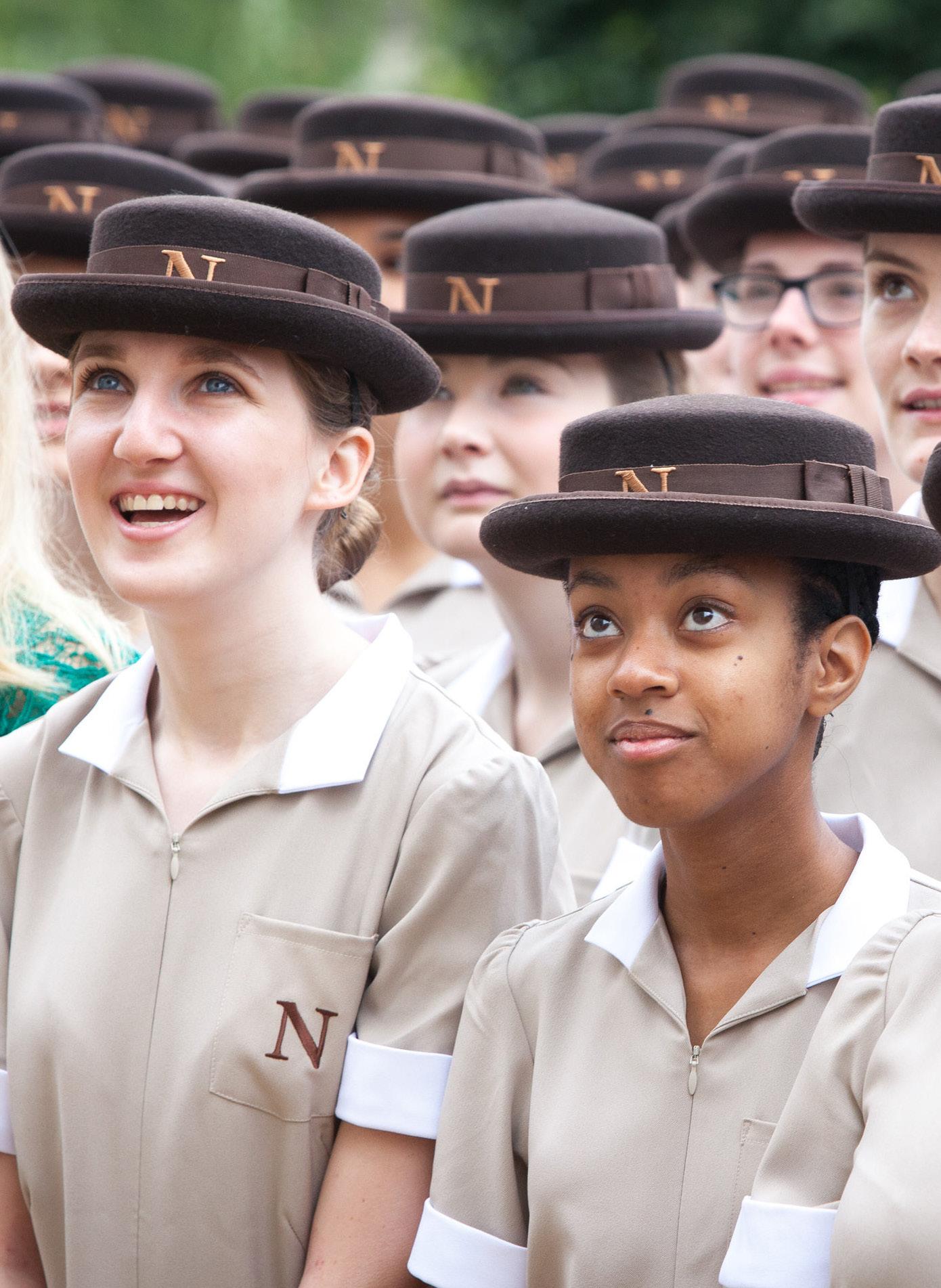
First-year tuition fees for September 2023 entry will be £15,740 for UK students and £17,850 for international students. This fee includes the cost of all compulsory offsite visits and study folders. Travel costs to campus or placement are met by the student; however, a contribution to placement travel is made where a placement is more than 8 miles from Bath.
Fees for successive years 2024/25 and 2025/26 are subject to annual review and may increase by up to 5% or the Consumer Price Index rate (if higher) each year.
Tuition fees are invoiced in approximately equal amounts termly and are due on the first day of each term unless paying by direct debit to an agreed instalment plan.
UK students may be eligible for a student loan to cover part of the cost of their tuition fees, which will be paid direct to Norland. Students are responsible for paying the difference between the fee loan borrowed and the total tuition fee payable to Norland. Students are eligible for maintenance loans to contribute towards living costs.
Subject to suitable interest, Norland also offers all students optional Spanish lessons and a Makaton course. There are additional charges for these courses.
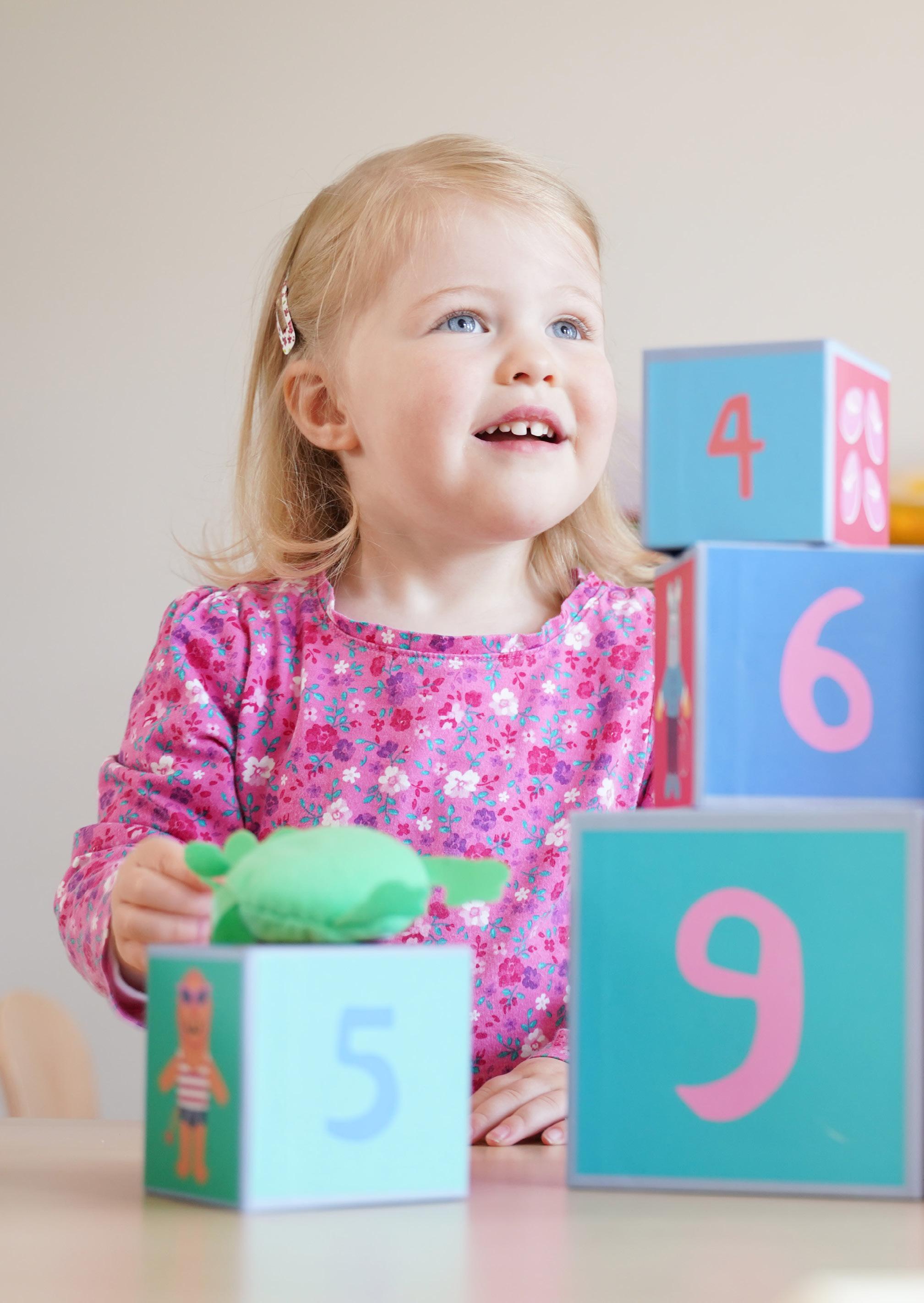
Norland prides itself on creating and maintaining a curriculum that delivers good value for money for students. Our Value for Money statement outlines the many ways in which Norland delivers 100% employment opportunities, a value-added curriculum and lifelong support for its graduates, as well as clearly presenting how tuition fees are spent.
The fee to cover the cost of lifelong support from Norland is £315. Charged once only, the fee is due on the first day of the first term.
The Emily Ward Bursary scheme, named after Norland’s founder, provides a number of means-tested bursaries each year to help eligible students meet the cost of their tuition fees.
In the past five years, Norland has awarded over £900,000 in bursaries, providing around one in four students with financial support.
Additional consideration is given to applicants who meet our widening-participation criteria.
If an offer of a place, conditional or unconditional, is made to you, bursary application forms will be sent to you automatically.
The Royal Commonwealth Society Bath and District Branch Scholarship is available to assist students from overseas Commonwealth countries with the costs of their studies at Norland.
The total cost of the Norland uniform is approximately £1,000, which should cover the three years of training at Norland.
All first-year students must complete a DBS check during Welcome Week, which currently costs £53. The recommended annual update service then costs £18 per year. Without the update service an additional £53 DBS check will be required at the beginning of the Newly Qualified Nanny (NQN) year.
Membership of the Professional Association of Norlanders (PAN) is mandatory for students in their NQN fourth year. Annual membership is expected to be £100.
Fees
Tuition fee Lifelong support fee*
Total termly fees
Term 1 £5,247 (£5,950) £5,562 (£6,265)
Term 2
Term 3 Total
£5,247 (£5,950)
£5,246 (£5,950)
£315
£5,247 (£5,950)
£5,246 (£5,950)
Students are required to provide their own sewing kit, which will cost approximately £60. In addition, students will purchase fabrics and the cost of these will vary depending on the fabrics chosen. You can expect fabrics to cost approximately £60 over the three years.
£315
£15,740 (£17,850) £16,055 (£18,165)
For more information on all of the above, please visit our website.
Norland is firmly committed to finding those who will make the very best early years practitioners and supporting them to work with babies, young children and their families in the home and other settings, regardless of their age, gender, disability, religion, nationality, or ethnic or socio-economic background. The Norland degree and diploma opens the door to many significant career opportunities for its graduates and we are committed to ensuring that those opportunities are available to all.
The guaranteed employment opportunities that our graduates have through the in-house Norland Agency, along with the significant salaries that they attract, provide a powerful vehicle for social mobility.
However, we recognise that barriers exist for some students which might ordinarily prevent them from studying at Norland, and we are determined to do our best to help potential students overcome those barriers.
Norland has a dedicated strategy and taskforce focused on supporting access and widening participation to our higher education provision. We have a particular concern not only to broaden our own student demographics, but to improve the participation of under-represented groups in the sector. We have a number of continuing initiatives which specifically target male and non-binary students, students from under-represented ethnicities, mature students and students who are care leavers.
Some of these targets are beginning to be met, such as the vast majority of our students arriving from state-funded education, rather than private schools. We have taken proactive steps to encourage students from different parts of society to study at Norland, such as visiting schools from disadvantaged areas, proactive marketing to change socio-cultural attitudes towards, for example, men working as nannies, and bespoke open days that promote inclusion and opportunities for all. Norland has adopted the International Holocaust Remembrance Alliance (IHRA) definition of antisemitism as part of its ongoing commitment to equality, diversity and inclusion.
Norland also provides practical, financial support via its bursary schemes, some of which are ring-fenced in order to attract students from under-represented groups, and it facilitates students’ capacity to ‘earn while they learn’, via employment opportunities both during term time and over the vacation period. Our widening-participation strategy and policy extends to all aspects of the student journey from enquiries to graduation and beyond, and includes setting up support groups for students from under-represented groups and having small teaching and tutor groups. This helps to ensure students are supported throughout their time at Norland, particularly those who may require additional encouragement or nurturing to feel part of the Norland and wider community.
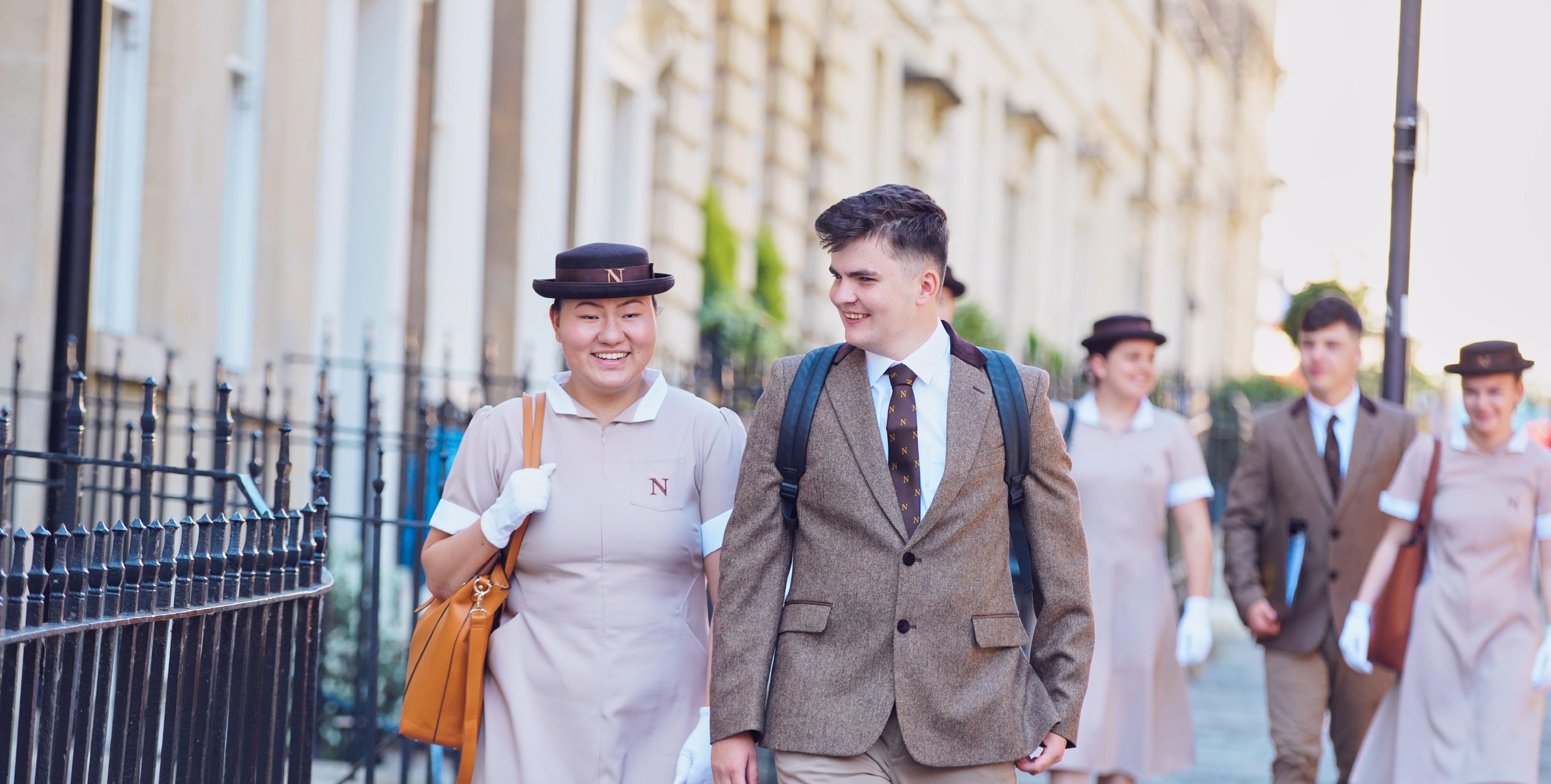
Norla nd College Scan this to find us:

39-41 Upper Oldfield Park

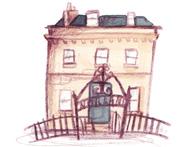




Bath
BA2 3LB

United Kingdom

Please be aware that there is no parking at Norland and parking is very limited in the local vicinity.
There is a taxi rank outside Bath Spa train station. Uber also operates in the city.
Bath Spa, the city’s largest and most central train station, is on the main line between Cardiff and Paddington, London. It takes about 20 minutes to walk from Bath Spa or 10 minutes from Oldfield Park station.
London is an hour and 25 minutes by train from Bath Spa.

University of Bath’s U1 bus runs frequently on Saturdays during term time and it’s just a 5-minute ride to Lower Oldfield Park, which is just around the corner from Norland. A day ticket is £3 and you do not need to be a student to use this service.
Odd Down Park and Ride will stop once on the way into the city centre on Wells Road/ Oldfield Road. Norland is a 10-minute walk from here.
The nearest airport is Bristol Airport, which is a 45-minute drive or a one-hour journey on the A4 bus from Bath city centre. Bristol Temple Meads is a 25- to 30-minute journey by bus from the airport, with a service departing regularly.
Of all of the London airports, Heathrow is the best connected to Paddington station where you can board a direct train to Bath Spa.
Scan to explore our campus
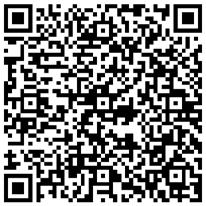
Norland College has taken all reasonable efforts to ensure that the information in this prospectus is correct at the time of printing (September 2022). Norland reserves the right to remove, vary or amend the content of this prospectus at any time. The information provided in this prospectus is intended as a guide. For the most up-todate course information, please refer to our website at norland.ac.uk
© Norland College Limited and may not be reproduced or transmitted in any form in whole or in part without the prior written consent of Norland College.























You should apply to Norland through UCAS (the UK’s Universities and Colleges Admissions Service).
You will need:
Our institution code: N52
Our course code: x310
Our course name: BA (Hons) Early Childhood Education and Care
Visit norland.ac.uk to get started.
Register your interest
Are you a Norland Nanny of the future?
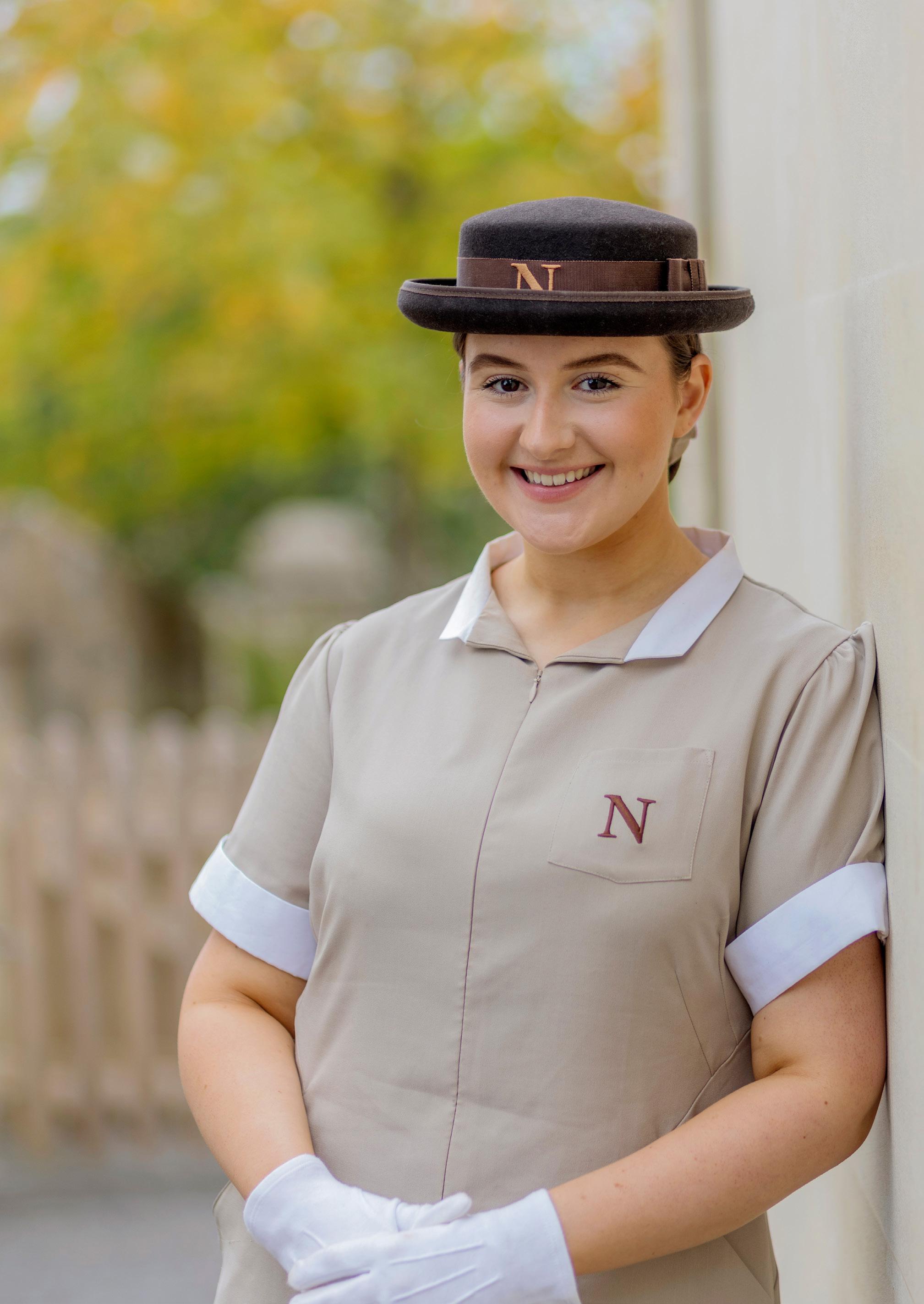
We’d love to send you more information about studying at Norland. Register to receive the latest Norland news including open days, funding opportunities and student life at Norland. It only takes a moment.
Sign up at norland.ac.uk
Our open events are an ideal opportunity to find out more about our award-winning academic degree and integrated practical diploma training, and to meet our staff, students and alumni. Events include an outline of the course and the outstanding employment opportunities available to Norland graduates.
You will have the chance to ask questions about all aspects of the course, and you will be provided with practical information about studying at Norland, the student experience and the lifelong career support and employability prospects you can look forward to once you are fully qualified.
Our virtual Norland Unwrapped series offers you an opportunity to explore different aspects of our training and student life in more detail and gives you another chance to ask questions of staff, students and Norlanders.

Saturday 12 November 2022 (virtual)
Saturday 20 May 2023 (on campus)
Saturday 7 October 2023 (on campus)
Visit
“When I went to the open day it was clear to me I would receive the best training at Norland.”
Ellie #WeAreNorland
